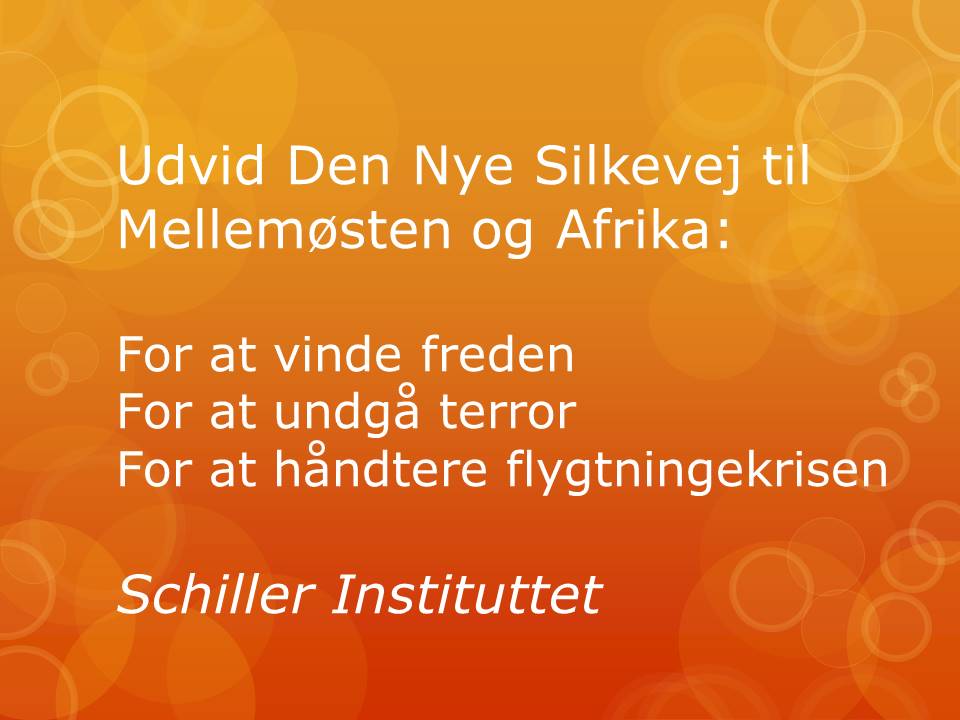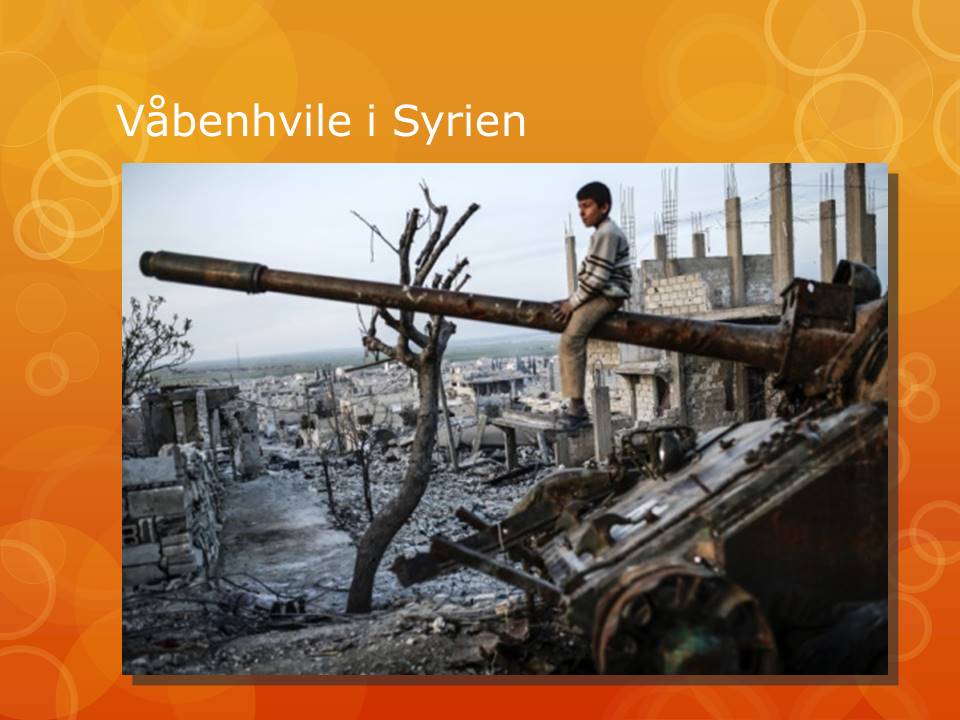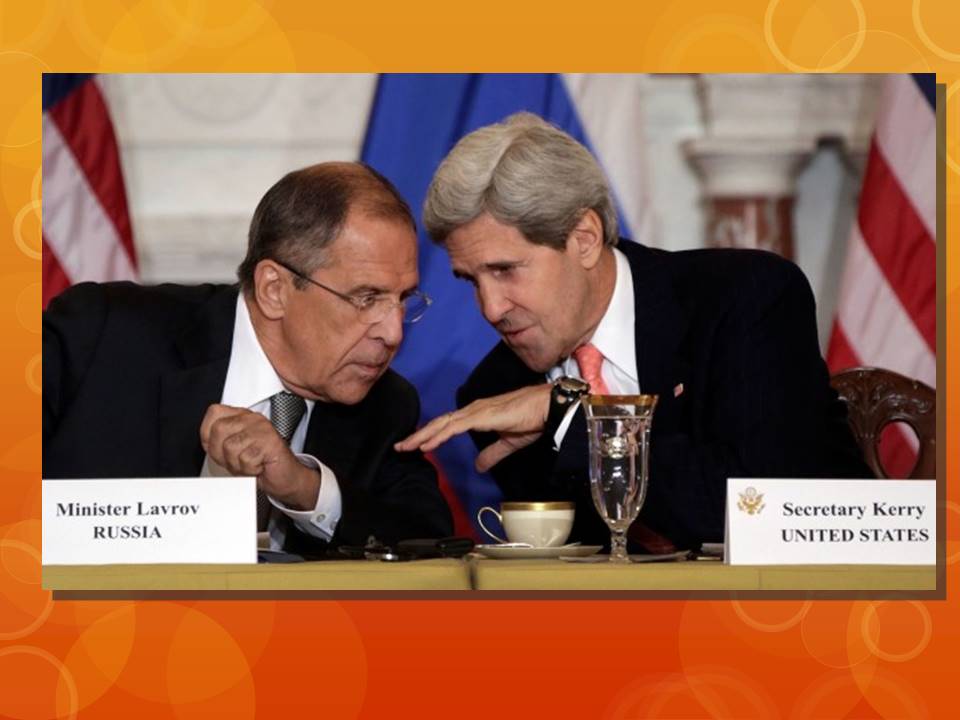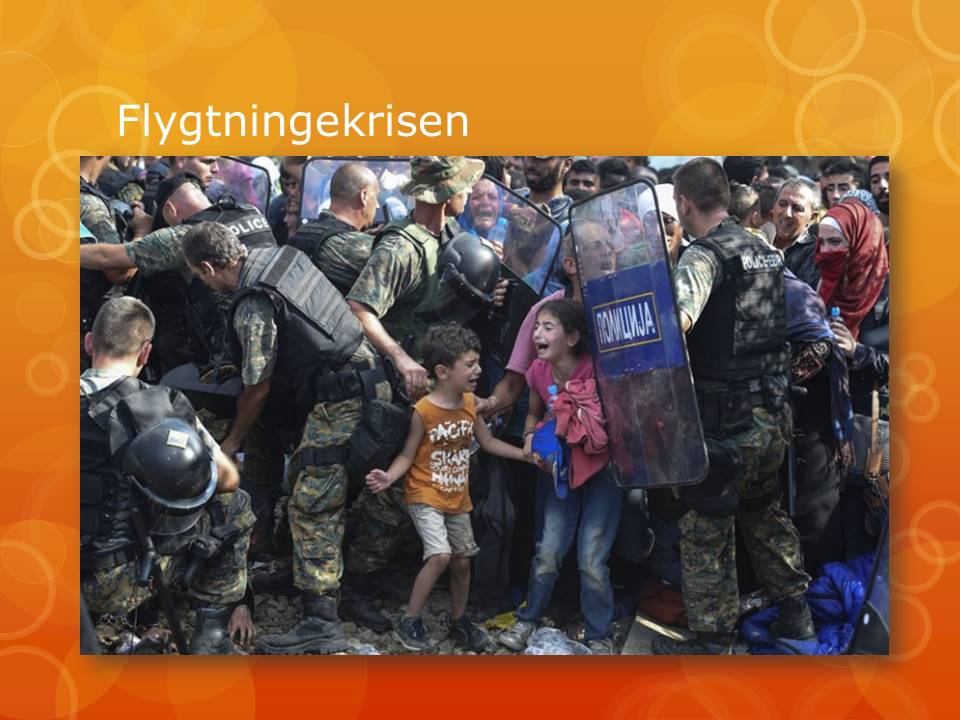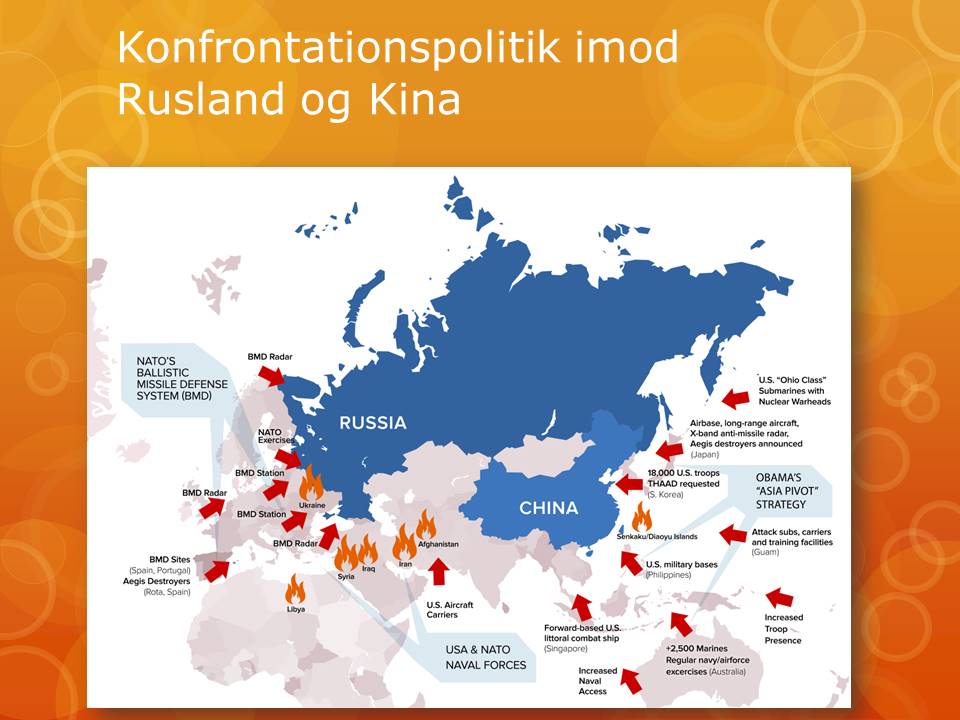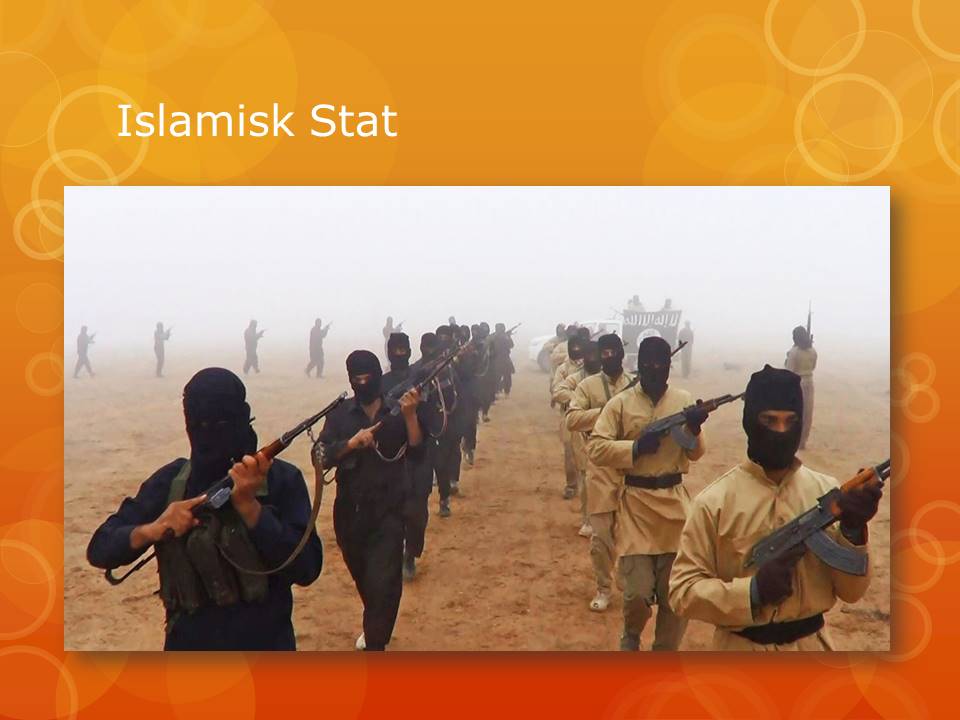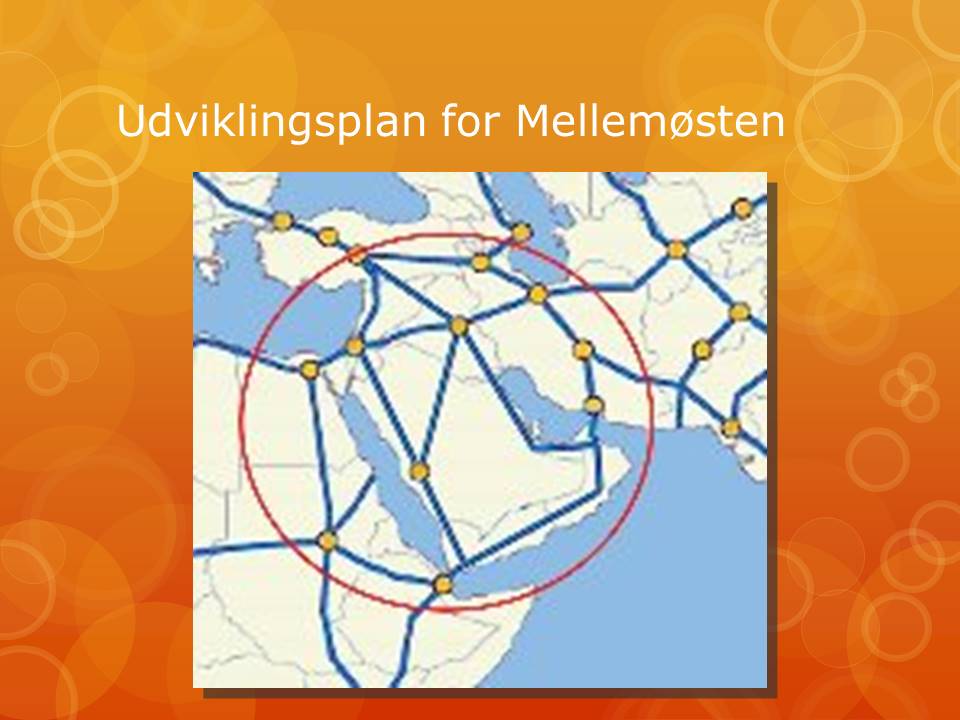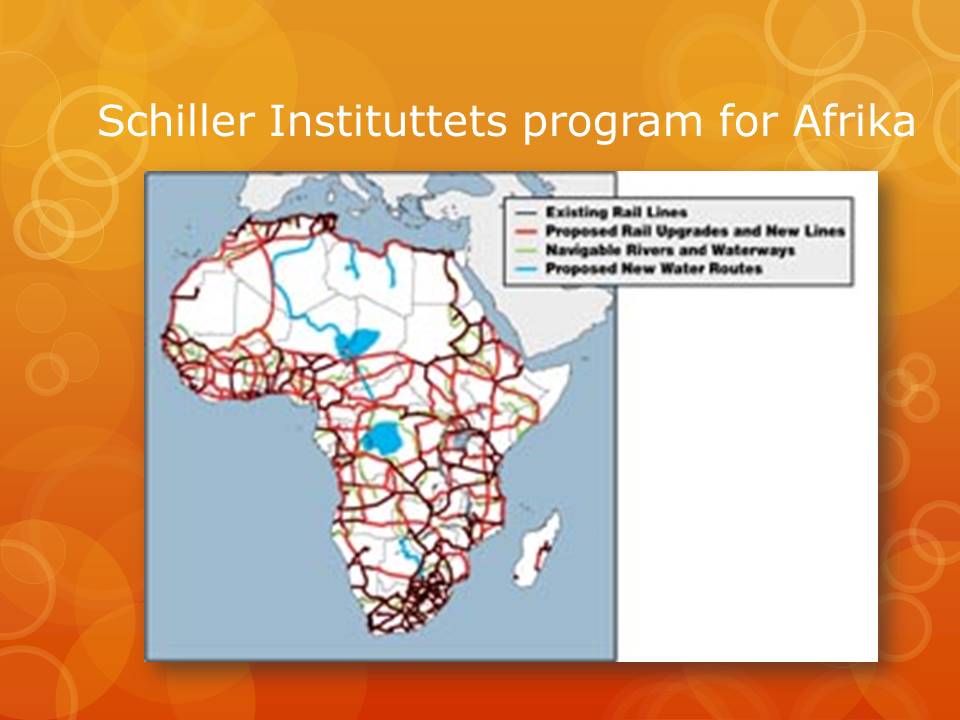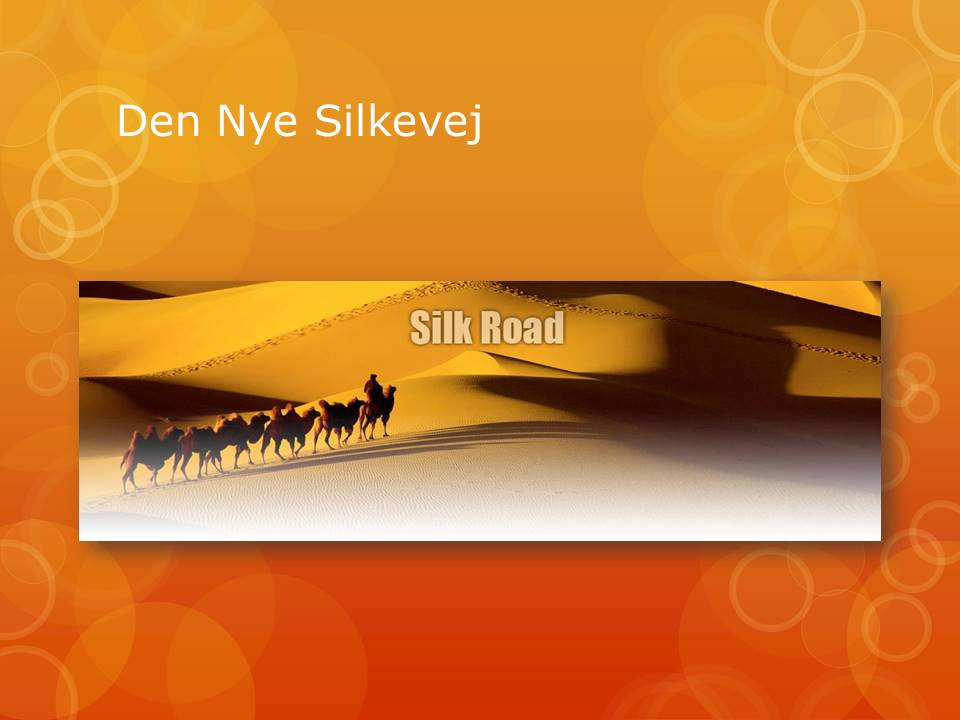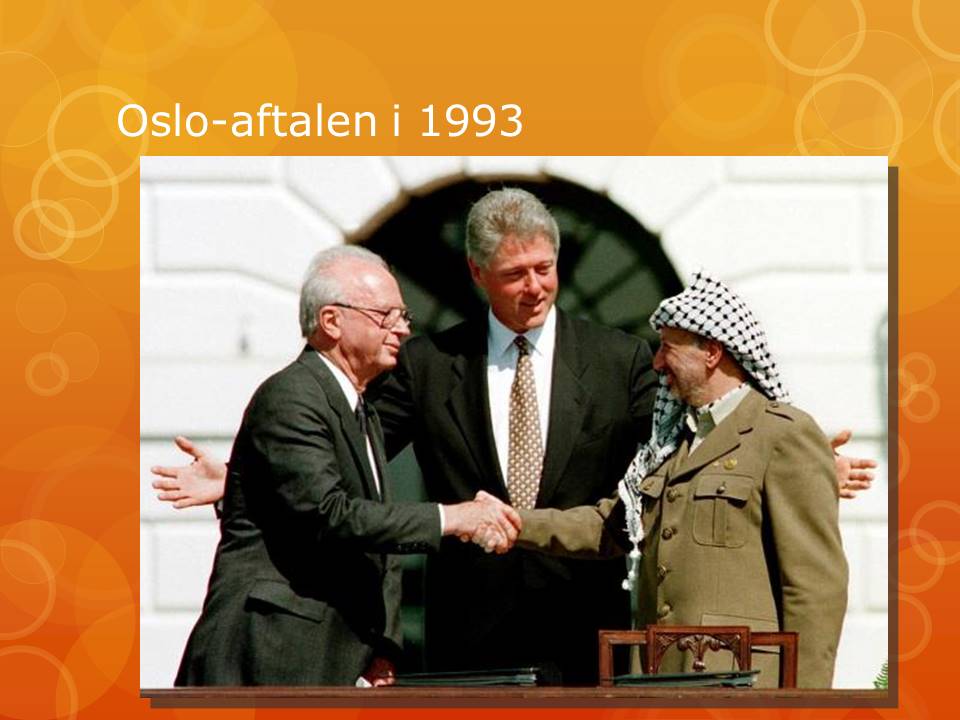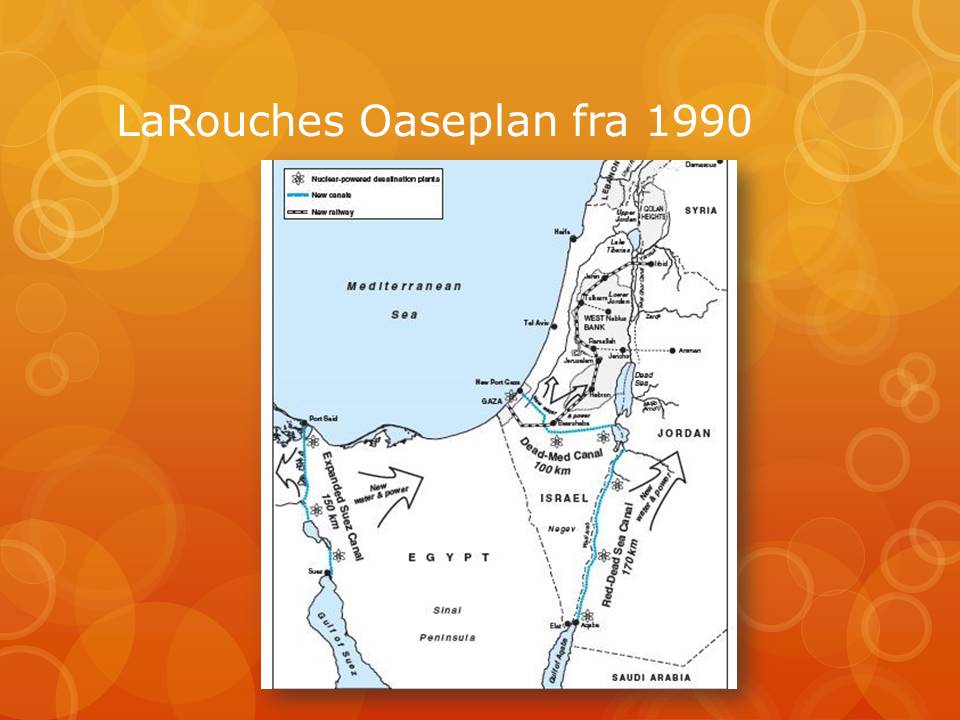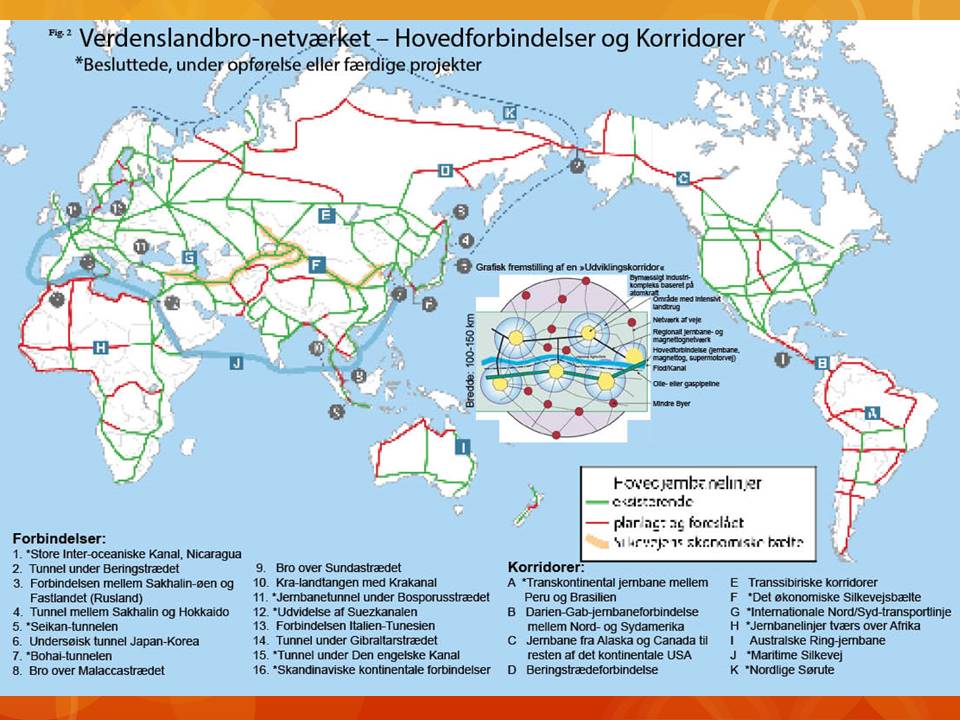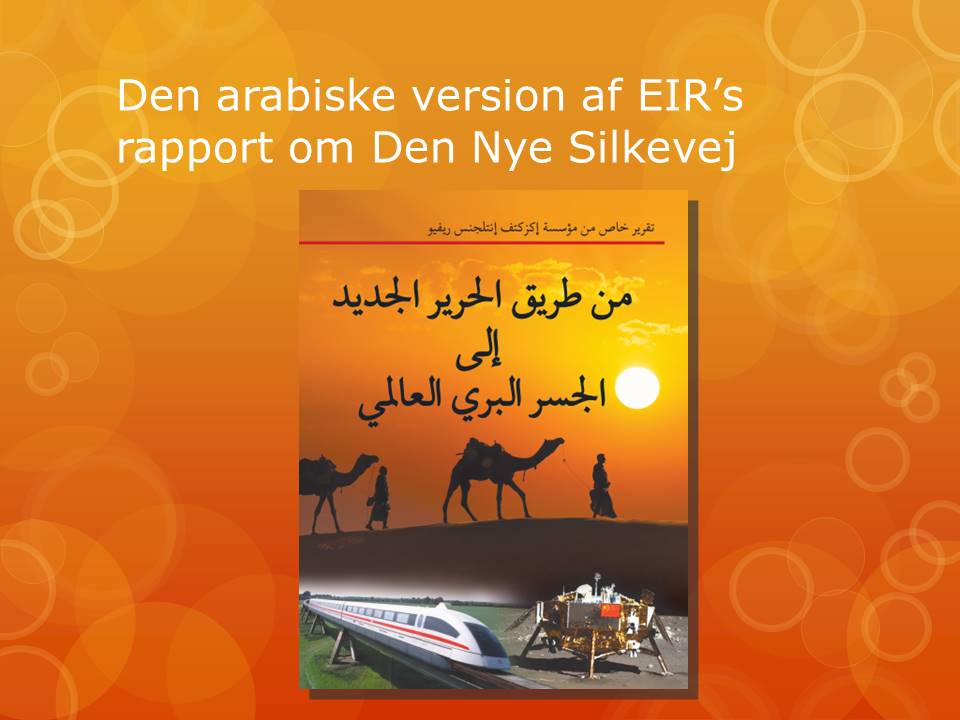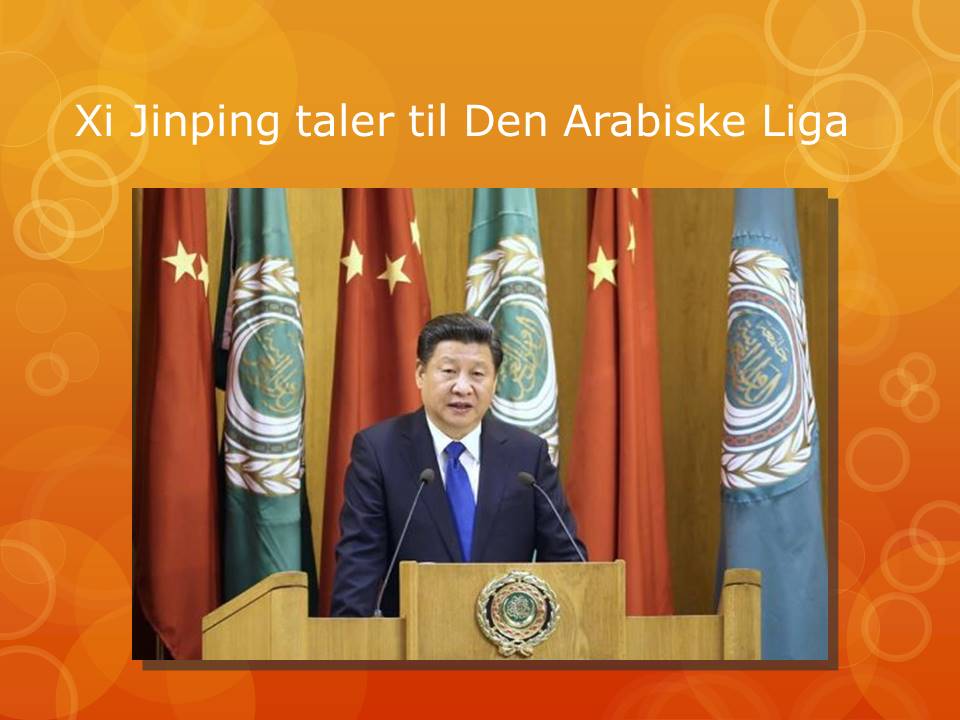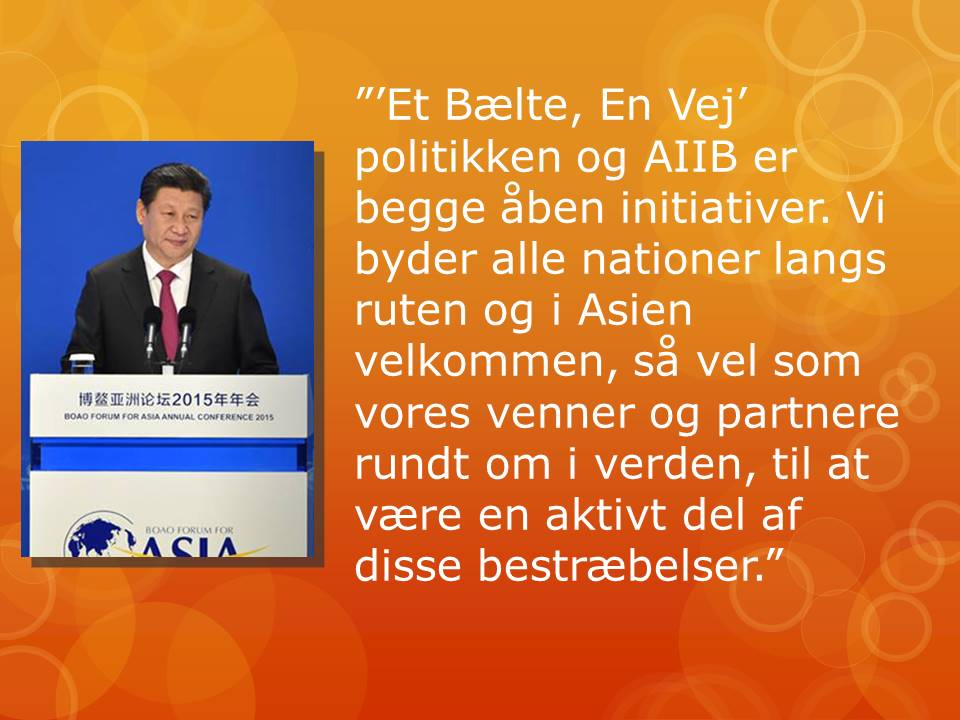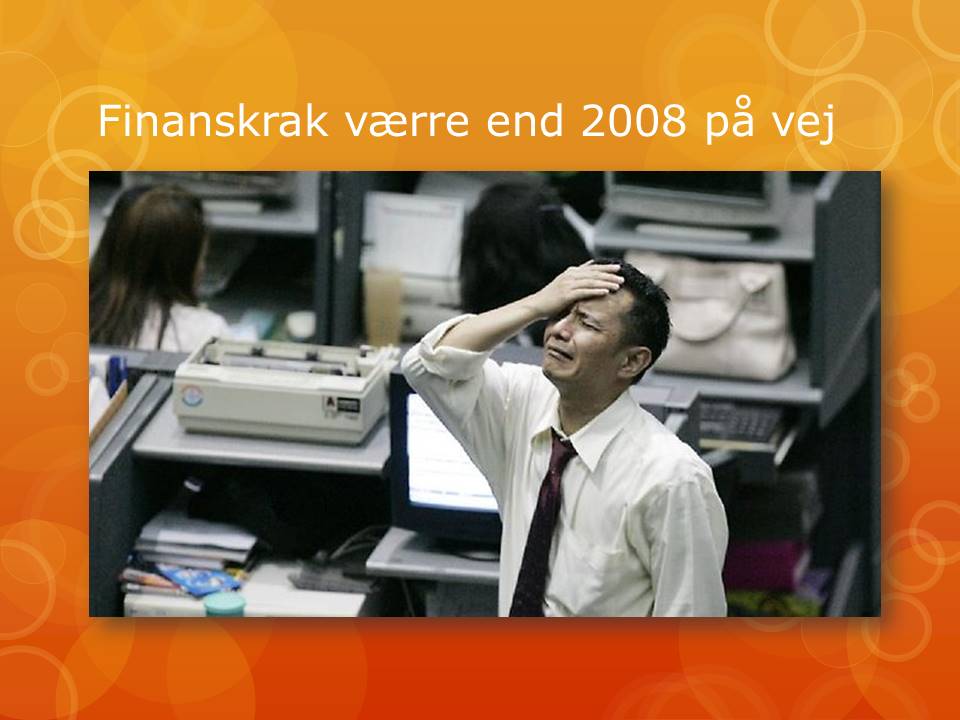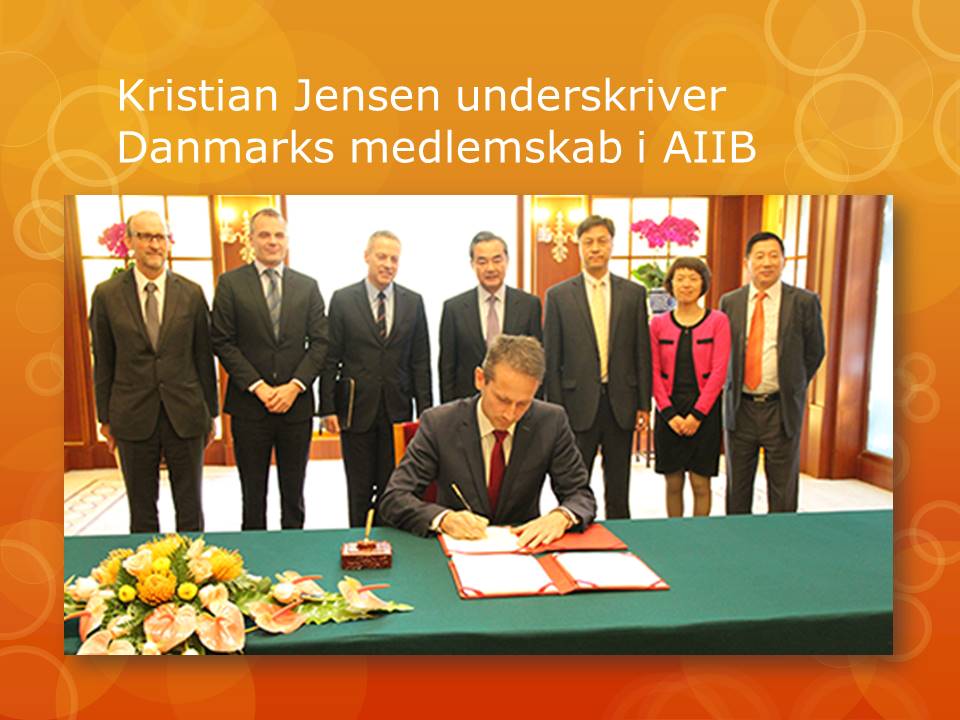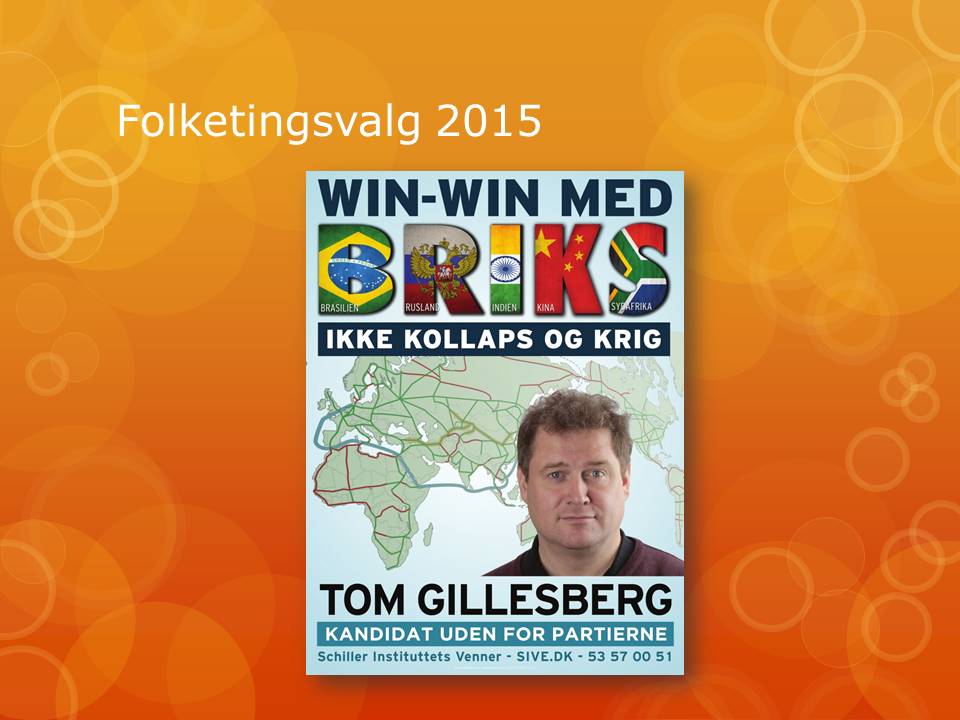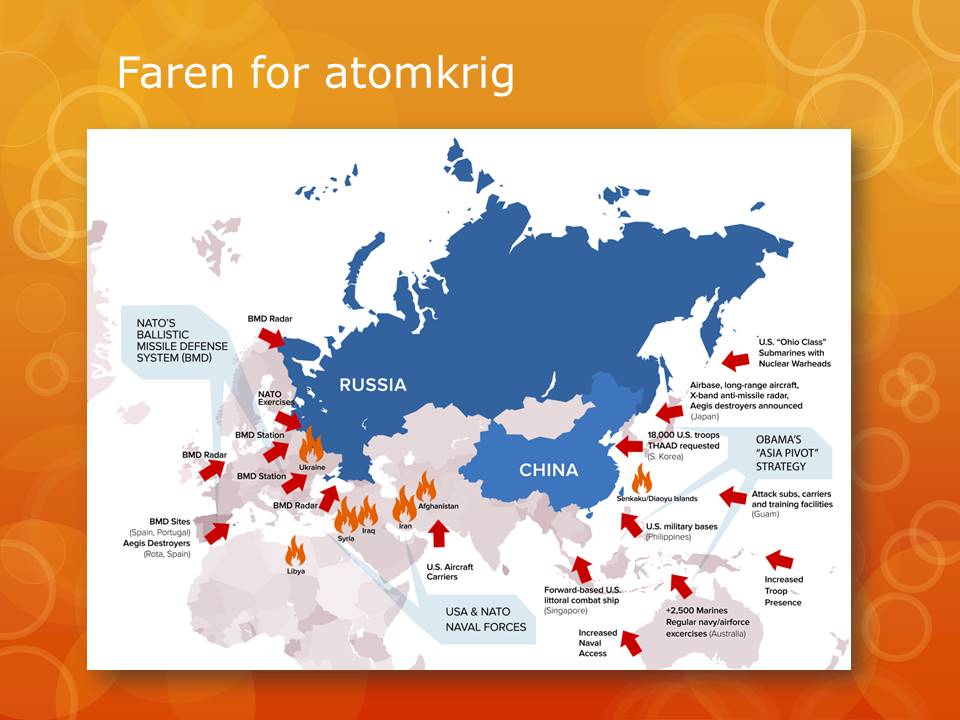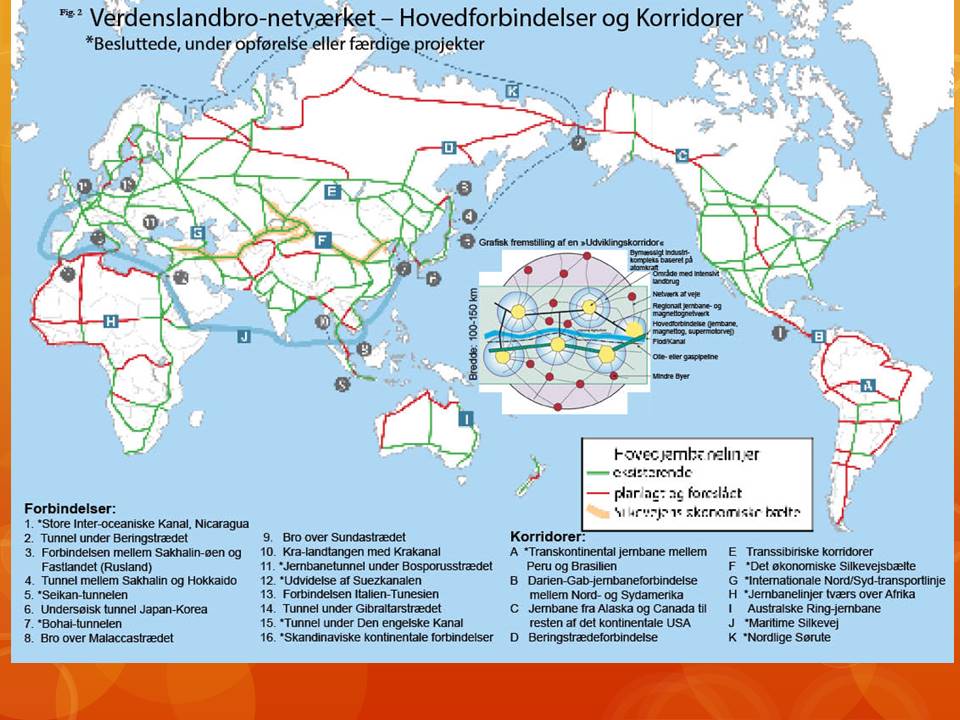POLITISK ORIENTERING den 9. juni 2016:
Fører NATO’s provokerende øvelser til krig?
Se også anden del (11 min.).
Med formand Tom Gillesberg
Video: 2. del:
Lyd:
Med formand Tom Gillesberg
Video: 2. del:
Lyd:
Med formand Tom Gillesberg
Det forestående NATO-topmøde i Warszawa den 8. – 9. juli forventes at blive endnu en provokation mod Rusland. Ved at underskrive denne appel siger vi ”stop” denne optrapning mod atomkrig, før det, der er uigenkaldeligt, indtræffer!
30. maj 2016: Følgende appel cirkuleres internationalt, inklusive på den internationale LaRouche-bevægelses websider:
Det forestående NATO-topmøde i Warszawa den 8. – 9. juli forventes at blive endnu en provokation mod Rusland. Ved at underskrive denne appel siger vi ”stop” denne optrapning mod atomkrig, før det, der er uigenkaldeligt, indtræffer!
Dette er en alvorstung time. En ny missilkrise er under opbygning, som et spejlbillede af den, der i 1962 førte til, at Sovjetunionen deployerede atomsprænghoveder på Cuba, på USA’s dørtærskel. I dag er situationen omvendt. Dengang bekæmpede NATO Warszawa-pagten; i dag organiserer NATO et topmøde i Warszawa!
Vi, der underskriver dette, observerer, at NATO gennemfører en provokerende ”inddæmningspolitik”, som følger: (se pdf)
Med formand Tom Gillesberg
Video 2. del: (5 min.)
Lyd:
Med formand Tom Gillesberg:
Med formand Tom Gillesberg
Med formand Tom Gillesberg
Video:
2. del:
Lyd:
Med formand Tom Gillesberg:
<iframe width=”100%” height=”450″ scrolling=”no” frameborder=”no” src=”https://w.soundcloud.com/player/?url=https%3A//api.soundcloud.com/tracks/263241683&auto_play=false&hide_related=false&show_comments=true&show_user=true&show_reposts=false&visual=true”></iframe>
EIR: Hvordan ser du samarbejdet med Kina, og deres ambitiøse program?
Mogensen: Vi samarbejder også med Kina hos ESA; de bliver en vigtig samarbejdspartner i fremtiden. De er så bare ikke i dag en del af samarbejdet bag Rumstationen. Men vi håber da på, i hvert fald fra europæisk side, at få etableret et samarbejde, og jeg også, at der er en god chance for, at vi en dag ser en europæisk astronaut ombord på den næste, kinesiske rumstation. Hør mere.
Schiller Instituttets optagelse.
Se også EIR's og Schiller Instituttets kort interview med Andreas Mogensen efter konferencen. (kommer senere)
1. del:
2. del:
Program:
Ordstyrer: Helge Sander
15.00 MF Orla Hav byder velkommen
15.03 praktiske forhold ved ordstyrer Helge Sander
15.05 rumlovens perspektiver. Ulla Tørnæs.
15.13 Andreas Mogensen præsenteres
15.15 indlæg under overskriften "de industrielle muligheder indenfor rumfart".
15.25 Niels Buus, Gomspace Aalborg.
15.30 Peter Sloth, kontoret for Rum, uddannelses- og forskningsministeriet.
15.35 Charlotte Rønhof, Dansk Industri (erstattet af en anden fra DI)
15.30 Torben Andersen Lindhardt, Dansk Metal.
15.45 Morten Bødskov, MF Socialdemokraterne, formand for Ehrvervsudvalget
15.50 Jakob Engel-Schmidt, MF Venstre, i Uddannelses- og Forskningsudvalget
15.55 der indsamles spørgsmål til Andreas Mogensen.
16.00 Andreas Mogensen besvarer indsamlede spørgsmål stillede af Helge Sander.
(Desværre kom videobilledet ikke frem p.g.a. en teknisk fejl, men der er lyd.)
Ambassadør Peter Taksøe-Jensen præsenterede sin udredning af dansk udenrigspolitik på Københavns Universitet den 2. maj 2016. Schiller Instituttet stillede et spørgsmål, om at i stedet for at betragte Rusland som værende på den anden side, at vi burde samarbejde med Rusland og Kina, om at forlænge Silkeven til Mellemøsten og Afrika, som en måde at forhindre terror, flygtninge, og en ustabil område. Ambassadør Taksøe-Jensen svarede således:
Jeg synes ikke — det er svært at ikke være glade for, at der er ført en fast politik overfor Rusland, når Rusland har besluttet sig for at ændre den europæiske sikkerhedsordning. Så at slå ind på et samarbejdspolitik nu, det vil ikke føre frem til, tror jeg, at vi vil få et mere sikkert eller stabil Europa end den politik vi har ført både i NATO og EU, og hvor Danmark har bakket fuldt op om det.
Men idéen om at prøve at udbrede vores samarbejde med Kina, og prøve at bygge økonomiske udvikling, og opbygge Silkevejen, det synes jeg bestemt giver mening, fordi hvis vi kikker på hvad der har bragt flest mennesker ud af fattigdommen, så har det været økonomisk vækst, og det synes jeg da er noget vi kan bidrage med, som en del af vores formål. Det har også den positive afledte effekt at det også er [på denne måde] at vi bekæmper fattigdom.
Med formand Tom Gillesberg
Kommer senere på dansk.
Abbas Rasouli, the First Secretary at the Embassy of the Islamic
Republic of Iran in Denmark: Address to {EIR}-Schiller Institute
Seminar “Extend the New Silk Road to the Middle East and Africa”
April 18, 2016
THE SILK ROAD AND THE IRAN FACTOR
ABBAS RASOULI: In 2013 China proposed to build an “economic belt
along the Silk Road,” a trans-Eurasian project spanning from the
Pacific Ocean to the Central Asian countries all the way to
Europe.
The New Silk Road already have momentum. In early 2015 China
announced $62 billion of its foreign exchange reserves will be
made available to the three state-owned policy banks that will
finance the expansion of the new Silk Road.
Beyond Central Asia the economic belt along the Silk Road
can also provide the vehicle for China’s expansion of its trade
relations with both the Middle East and Europe. And here is when
the Iran link comes into the equation.
In February 2016 a freight train from Yiwu in China’s
eastern Zhejiang province arrived in Tehran. The China-Iran “Silk
Road train” is a part of the overland component of China’s One
Belt, One Road (OBOR) initiative.
The train used the existing rail links from China through
Kazakhstan and Turkmenistan before entering Iran. It took the
train just 14 days to cover the roughly 10,399 km long journey to
Tehran whereas ferrying cargo via the sea from Shanghai, which
lies 300 km north of Yiwu, to the Iranian port of Bandar Abbas
takes 45 days in comparison.
It is expected that construction of new high-speed rail
links through Central Asia will enable trains carrying goods to
run further on to European markets. Besides facilitating
Sino-Iran trade, these railway lines will contribute to Iran’s
emergence as an important Eurasian trade hub. Iran will thus be
integrated more into the economies of East and Central Asia as
well as Europe.
Bilateral trade between Iran and China grew from $4 billion
in 2003 to $53 billion in 2013. In January 2016, during the visit
of Chinese President Xi Jinping to Iran, the two sides agreed to
increase trade to $600 billion over the coming decade. So the
operation of this railway link will prove an important factor in
the development of trade between Iran and the countries along
this economic belt.
The important thing about the Iran corridor is that existing
road and rail links between China, Central Asia and Iran only
needs to be modernized whereas some parts or all of the other
corridors have to be constructed from scratch, each with their
own security and geographical challenges.
The Yiwu-Tehran railway is just one of the many projects
that enhance regional connectivity, bringing together China,
Central Asia, the Persian Gulf and West Asia.
India, has also been eyeing overland access via Iran to
Central Asian and European markets too. In this connection the
North-South Transport Corridor (NSTC), a multi-modal trade
transport network that includes sea and rail transport from India
via Iranian ports on the Persian Gulf to as far as the Baltic Sea
via Russia, was initiated by Russia, India and Iran in September
2000 to establish transportation networks among the member states
and to enhance connectivity with the land-locked region of
Central Asia. Among the few routes in this corridor the
Mumbai-Chahbahar or Bandar Abbas (Persian Gulf)-Anzali-Astara
(Iran Caspian Sea)-Astara (Azerbaijan)-Baku-Russia-Kazakhstan is
receiving much attention. With the completion of this route Iran
will emerge as another important transit hub in the Asia-Europe
trade giving India overland access to Europe as well.
Of the 1500 km Bandar Abbas-Bandar-Anzali railway link only
50 km remains to be completed, but the 164 km Anzali-Astara link
is still at negotiation stage. A working group made up of India,
Iran, Azerbaijan and Russia has been formed to look into raising
finance to construct the Anzali-Astara (Iran)-Astara (Azerbaijan)
railway connection. All parties appreciate the urgency of moving
this project forward and as recently as last week, Russia,
Azerbaijan and Iran agreed to speed up the project.
The North-South corridor, when completed, is expected to
significantly reduce the time of cargo transport from India to
Central Asia and Russia. At present, it takes about 40 days to
ship goods from Mumbai in India to Moscow. The new route will be
able to cut this time to 14 days.
The primary objective of the NSTC project is to reduce costs
in terms of time and money over the traditional route currently
being used between Russia, Central Asia, Iran and India. With
improved transport connectivity their respective bilateral trade
volumes are most likely to increase tremendously. According to
various studies the route, once fully operational, will be at
least 30% cheaper and 40% shorter than the current traditional
route.
Though every country is important in any transport chain,
Iran, neighbor with 15 countries, is not only a hub for
distribution to the neighboring countries of about 400 million
but has the added advantage of being a strong economy between
giants at each end of these corridors namely China, India, Russia
and Europe.
Some of the economic advantages of Iran are:
* The 18th largest economy in the world by purchasing power
parity (ppp);
* A diversified economy with a broad industrial base;
* Resource-rich economy;
* Labor-rich economy;
* Young and educated population;
* Large domestic market;
* An increasingly sophisticated infrastructure and human
capital base providing the foundation for an emerging
knowledge-based economy.
* A market of 80 million with easy access to another market
of 400 million.
In a global world where international trade is taking on
greater significance, transport costs and delivery time are two
of the most important factors in the choice of the mode and route
of transporting goods.
The completion and modernization of the North-South and
East-West Transport corridors will cut transport costs and
delivery time thereby enhancing trade between East Asia, South
Asia, Central Asia, Middle East and Europe.
Kommer senere på dansk.
Helga Zepp-LaRouche Addresses Seminar in Copenhagen,
April 18, 2016 [unproofed draft]
We Need a New Paradigm for Humanity
HELGA ZEPP-LAROUCHE: Well, thank you very much for this
kind introduction.
Dear Excellencies, Ladies and Gentlemen: I would like to
start my presentation with showing you a point of view which may
be unusual to discuss the strategic situation, but I think it is
quite adequate.
This is a time-lapse video where you can actually have a view
from space. This is the kind of view normally only astronauts,
cosmonauts, taikonauts have. They all come back from their space
travel with the idea that there is only one humanity, and that
our planet, which is very beautiful and blue; however, it is very
small in a very large solar system and an even larger galaxy, not
to mention the billion galaxies out there in our universe.
With that view comes, naturally, the question of the future.
Where should mankind be in 100 years from now, in a 1000 years,
in 10,000 years? Well, you have to exercise your power of
imagination. In 10,000 years, we probably are well beyond having
colonized the Moon, we have completed very successful Mars
missions, we will have a much, much better understanding about
our solar system, our galaxy, and we will have gotten a much
deeper understanding about the principle of our universe.
Just think, that it took 100 years before modern science
could confirm that Einstein's conception about gravitational
waves was correct. Ten thousand years of the past human history
has brought tremendous progress. But just think that this growth
can go on, exponentially. And since there is no limit to the
creativity and perfectibility of the human species, in 10,000
years we can have a wonderful world.
So, let's look from that view, into the future, to the
present, to have the right perspective.
Yesterday, the {New York Times}, in the Sunday edition, had
an article saying "The Race Escalates for the Latest Class of
Nuclear Arms," portraying in detail that the United States, and
Russia, and China are developing new generations of smaller and
less destructive nuclear weapons, which would make them more
useable. They quote in the article James Clapper, the Director of
the National Intelligence of the United States, that the world
has now entered a new Cold War spiral, where, basically, totally
different laws and rules govern, than it used to be the case with
Mutual Assured Destruction.
The previous NATO doctrine of Mutual Assured Destruction
proceeded from the assumption that the destructive power of
nuclear weapons is so horrible, because it will lead to the
annihilation of the human race, that nobody in their right mind
would ever use it. And therefore, it was a deterrence that these
weapons would never be used.
This is now no longer valid. What they are now discussing,
openly, on the front page of the {New York Times}, is that what
we, for a very long time, only we and a few of military experts,
have said, namely, that these modernized tactical nuclear
weapons, like the B12-61, in combination with stealth bombers,
with hypersonic missiles, can actually lead to the winning of a
nuclear war.
Ted Postol and Hans Kristensen, very respected military
analysts, have detailed at great lengths, why the idea of a
limited nuclear war is completely ludicrous, and it is the nature
of the difference between thermonuclear weapons and conventional
weapons, that once you enter a nuclear exchange, that it is the
logic of such a war that all weapons will be used, and that will
be the end of mankind. We are closer to that possibility than
most people dare to even consider, because if they would, they
would not remain so passive as they are now.
This is why I want to make emphatically the point–and this
is the purpose of conducting meetings like this seminar and many
other conferences we are engaged in–that we have reached a point
in human history where geopolitics must be superseded with a
completely new paradigm. And that is why I started with the view
from space. We need a new paradigm, basically saying goodbye to
the very idea of geopolitics, which has caused two world wars in
the 20th century. That new paradigm must be completely different
than that which is governing the world today.
We have, right now, rising tensions in the South China Sea.
Policymakers and the neighboring countries are extremely worried
about what will happen in the period between now and the trial in
The Hague. You have the largest maneuver around North and South
Korea right now, where people in the region are extremely worried
that the slightest provocation could lead to an exchange of
nuclear weapons.
You have the NATO expansion up to the Russian border.
Countries like Poland and Lithuania are asking to have these
modernized nuclear weapons located on their territory, even that
makes them prime targets.
The United States is continuing to build the anti-ballistic
missile system which, supposedly, was against Iranian missiles,
but after the P5+1 agreement has been reached, it is obvious this
was always a pretext and the aim was always to take out the
second strike capability of Russia.
Then you have the entire region of Southwest Asia, still
being a terrible destruction and consequence of failed wars.
North Africa is exploding. You have new incidents between NATO
and Russia, all of a sudden in the Baltic Sea, which was, up to
now, a calm region where there are no conflicts, or, there have
been no conflicts.
In the Middle East briefing, discussing President Obama's
trip to Riyadh on the 21st of this month, they say that this trip
will open up a new page of NATO in the relationship to the Middle
East, that what Obama will try to establish is a new relationship
between NATO and the Gulf Cooperation Council countries.
So, we have a situation where the {New York Times}, also
yesterday, and I'm quoting these papers to say that these are not
some opinions of us, but this is now the public discussion, that
what is really at stake in the South China Sea is not so much the
fight around some uninhabited reefs and cliffs, or some tiny
islands, but it is the American effort to halt China's rise. And
not only China's rise, but that of Asia. China, Asia arising; the
trans-Atlantic region is in decline.
Just now, we are heading towards a new financial crisis, and
all signs are, that we are going into the same kind of crash like
2008. Already since the beginning of this year, $50 billion
corporate defaults were taking place, which is on the same level
like what happened in 2009.
What the United States is trying to assert under this
conditions, where the trans-Atlantic world is in decline or
marching towards collapse, to insist that nevertheless a unipolar
world must be maintained. The problem is, that unipolar world,
effectively, no longer exists. But still, what carries American
policy to the present day, is the Project for the New American
Century, the so-called Wolfowitz Doctrine, which is a neocon idea
which says that no country and no group of countries should ever
be allowed to challenge the power position of the United States.
In the age of thermonuclear weapons, the insistence to maintain a
non-tenable world order could very quickly lead to the
annihilation of civilization.
It is a fact: China has made an economic miracle in the last
30 years which is absolutely breathtaking. And it is continuing,
despite all the media rumors about China's economic collapse.
India has by now the largest growth rate in the world; it's above
7%. Many other Asian countries have explicitly formulated the
goal for themselves to be developed countries in a few years. The
Chinese economy right now is rebounding. They just announced that
in the next five years China is going to import $10 trillion
worth of imports. They will invest $600 billion worth of
investments abroad. Every day 10,000 new firms are being created
in China.
So, if you look at the development, especially since
President Xi Jinping announced in September, 2013 in Kazakhstan,
that the New Silk Road, the One Belt One Road, is put on the
agenda. In the Two and a half years since that time, more than
sixty nations have joined with China in this development. They
have created the New Silk Road, the Maritime Silk Road; these
nations have created a whole set of alternative
economic-financial institutions, such as the AIIB, which, despite
massive pressure from the United States not to do so, immediately
was joined by sixty founding members. The New Development Bank
also started just now its functioning. The New Silk Road Fund,
the Maritime Silk Road Fund, the Shanghai Cooperation Bank, and
many more. All of these were created because the IMF and the
World Bank had not invested in the urgently required
infrastructure.
These banks are now engaged in very, very impressive, large
projects. For example: China invested $46 billion in the
China-Pakistan corridor. When President Xi Jinping recently went
to Saudi Arabia, Egypt, and Iran, consequently Iran,
fool-heartedly, declared that they are now part of the One Belt
One Road, New Silk Road development. Greece is now talking about
that after China is investing in the Port of Piraeus, that Greece
will be the bridge between China and Europe. The 16+1, that is
the East and Central European countries, just declared that they
absolutely want to participate in China helping to build a fast
train system in these countries. Those projects which the EU has
not bid, China is now building. Part of it is, for example, the
Elbe-Oder-Danube Canal, which will connect the waterways of these
countries. When President Xi recently was in the Czech Republic,
President Zeman announced that the "Golden City" of Prague will
be the gateway between the Silk Road and Europe. Also, Austria
and Switzerland are now fully on board and see the benefits of
their country's joining with the New Silk Road.
When President Xi Jinping at the APEC meeting in October
2014 offered to President Obama to cooperate in all of these
projects in a "win-win" perspective, he not only proposed
economic cooperation, but he put on the agenda a completely new
model of international relations exactly designed to overcome
geopolitics. The new model is supposed to be based on the respect
for sovereignty, non-interference into the internal affairs of
the other country, respect for the different social system the
other country chooses to adopt. It would really be, in a certain
sense, a fulfillment of the principles which are laid out in the
UN Charter anyway.
How was the Western response? Very, very ambiguous. The
United States in spite of this, never really responded to
President Xi's offer. They keep insisting on an unipolar world.
For example, in the TPP, like in the TTIP for Europe, it is said
very, very clearly, the U.S. sets the rules of trade for Asia and
not China. Recently, the American Defense Secretary Ash Carter,
and also NATO commander General Breedlove, declared the enemies
#1 of the United States are, first, Russia, second, China, third,
Iran, fourth North Korea, and only fifth terrorism.
Now that is in spite of the fact that many other statesmen,
such as United States Secretary of State John Kerry and Foreign
Minister Steinmeier, and many others, have recently also stated,
that all crucial problems of the world cannot be solved without
the cooperation of Russia, and China. For example, the P5+1
agreement with Iran, would never have come into being without a
constructive role of {both} Russia and China . Without Putin's
very intelligent intervention in the military situation in Syria,
this situation could not have come to the potential of a
political solution.
Also, apart from the military pressure, there is massive
pressure on the new institutions such as the AIIB and the New
Development Bank, to {not} be outside of the casino economy but
to follow the "international standards."
Now, in these times of the Panama Papers, of the various
LIBOR scandals, of the money laundering of many of these banks,
it is a sort of laughable thing, what should be these
"international standards" of the Western financial system.
Now, let's be realistic. At the IMF/ World Bank meeting
which just concluded in Washington over the weekend, behind the
scenes there was complete panic, but nobody dared to speak about
it openly, behind the scenes people were talking, what former
IMF boss Strauss-Kahn has said repeatedly, publicly, that we are
heading towards the "perfect political storm." That if one of
the too-big-to-fail banks collapses, it will lead to a crisis
much, much worse than 2008.
At the recent Davos Economic Forum, the former chief
economist of the BIS William White said that the world system is
so utterly overindebted, that there are two roads only possible:
Either you have an orderly writeoff of the debt, like in the
religious Jubilee, so that you just say "these debts are not
payable," and you write them off, or it will come to a disorderly
collapse.
Now, the situation is all the more urgent, because unlike
2008 when everyone was talking about the "tools" of the central
bank, like interest rate reduction, rescue packages, bailouts,
all of these tools don't function any more. As a matter of fact,
when the competition for more zero interest rate, or even
negative interest rate, when into high gear in the last month,
when, for example, the Bank of Japan or the central bank of
Norway, or the ECB declared a zero interest rate policy, or even
a negative interest rate policy, it boomeranged! It had the
opposite effect: Rather than leading to more investment, in the
real economy, it led to a deflationary escalation of the
collapse.
When Mario Draghi, the chief of the ECB, recently announced,
"yeah, yeah, we have a discussion about helicopter money." And
Ben Bernanke echoed it and said, "yes, now we need helicopter
money," meaning electronic printing of {endless} amounts of
worthless money, virtual money, they de facto announced that the
trans-Atlantic financial system is absolutely in the last phase.
Because after helicopter money comes only evaporation.
But this is only the most obvious of the crises. Another
one, which is in a different domain, but equally systemic is the
refugee crisis in Europe. Now, I supported Chancellor Merkel
when she initially said, we can manage that, we can give refuge
to these people, and for the first time, I was saying "this
woman is doing the right thing." I know there was a lot of
international criticism, but she acted on the basis of the Geneva
Convention on refugees, but it was the right thing to do. But
the reactions from the other European countries, revealed an
underlying, basic flaw of the EU, a flaw which was not caused by
the refugees, but it was revealed by the first serious challenge,
that in the EU, as it has been conceptualized in the Maastricht
Treaty going up to the Lisbon Treaty, there is no unity, there is
no solidarity; and with the collapse of the Schengen agreement
which allows free travel within the internal borders of the EU,
the closing of the so-called Balkan routes, to prevent refugees
from coming, the basis for the European common currency is also
gone, because without the Schengen agreement, the possibility to
have the euro last is extremely dubious.
Now, with the recent response by the EU to basically have a
deal with Turkey, I mean, this is beyond the bankruptcy of the
whole EU policy if you can top it. At a point when the Russian
UN Ambassador Vitaly Churkin, presented the UN Security Council
with evidence that the Turkish government, is continuing up to
the present day to supply ISIS with weapons and other logistical
means, to then say, we pay Turkey EU6 billion, for what? To have
them receive refugees; and Amnesty International has already
said, there is no guarantee that these people will be protected,
but rather that Turkey is sending them back to the war zones,
like Syria, Afghanistan, and elsewhere.
So, if you look at the pictures of Idomeni, where the
Macedonian police are using tear gas against refugees who are
absolutely desperate; if you look at the fact that Greece is now,
rather than having refugee camps which would somehow process
these unfortunate human beings, they have, on pressure of the EU,
been turned into detention centers. Pope Francis was just in
Lesvos, together with the Greek Patriarch Bartholomew, and this
Patriarch said, the present EU policy on the refugee crisis, is
the completely bankruptcy of Europe. The Doctors Without Borders
left their job in Greece, because they said they cannot be
accomplices to the murderous policy of detention, where the
police decide who is a patient and not doctors. Instead of
protecting the people running away from wars and persecution,
they are now being treated as criminals.
Immediately, days after this disgusting EU-Turkey deal, it
turned out that it's a complete failure, the so-called "European
values," human rights, humanism, well–they're all in the
trashcan, because now the refugees, obviously still fleeing for
their lives, go to Libya trying to get into small boats to Italy.
And just yesterday the news came that another 400 people drowned
in the Mediterranean. And this will keep going on. And it will
haunt the people who are refusing to change their ways.
Now, there is a new element in the situation which may cause
sudden surprises, and that is a program which was presented by
CBS, a week ago Sunday, in the so-called "60 Minutes" program
portraying the coverup, of the U.S. governments from Bush to
Obama, of the famous 28 pages omitted in the publication of the
official Joint Congressional Inquiry into 9/11 by the U.S.
Congress; and as many people have said, and was said in this
program, this pertains to the role of Saudi Arabia in 9/11.
Yesterday, {all} the U.S. talk shows, and all the U.S. media,
pointed their finger to the coverup of the Bush administration
and even to the present day of the present government, that there
is a coverup of criminal activity.
Now, the Saudi Arabian government reacted very unnerved, and
this was again reported in the {New York Times}, that they would
sell off $750 billion in U.S. Treasuries, if the U.S. would allow
a bill that would allow Saudi Arabia to be held responsible in
court, for their role in 9/11. Now, that's not exactly a sign of
sovereignty, but of despair. There are several U.S. Senators,
among them Mrs. Gillibrand from New York, who demand that this
whole question of the Saudi Arabian role in 9/11 must be on the
agenda when President Obama goes to Riyadh this week. Which in
any case, may not happen, but it will not be the end of the story
because the genie is now out of the bottle.
OK: How do we respond to these many, many crises? Well,
there is a solution to all of these problems. The trans-Atlantic
should just do exactly what Franklin D. Roosevelt did in 1933, in
reaction to the world financial crisis at the time. Implement
the full banking separation — Glass-Steagall — and the whole
offshore nightmare which is being revealed in the Panama Papers,
and remember, that this firm Mossack Fonseca is only the fourth
largest of such firms, and 11 million documents still need to be
read through, and processed. But we have to go back to the kind
of international credit system, as it existed in the Bretton
Woods system, before Nixon ended the fixed exchange rate in 1971,
opening the gate for floating exchange rates and especially the
creation of offshore money markets for the unlimited creation of
money and other illegal operations as it now is coming out.
Then we need a writeoff of the absolutely unpayable state
debt, which has accumulated and ballooned after the bailouts of
2008 and afterwards. And we have to basically get rid of the
toxic paper of the whole derivatives markets, because they are
the burden which is eating up the chance for the investment in
the real economy.
Then, we need a Marshall Plan Silk Road; and the only reason
I'm talking about a Marshall Plan, despite the fact that China
is {emphatic} that they do not want a Cold War connotation to the
New Silk Road, it gives people in the United States and Europe a
memory, that it is very possible to rebuild war-torn economies,
as it happened in Europe after the Second World War.
Now, with the ceasefire which was negotiated between Foreign
Ministers Kerry and Lavrov, you have now a still-fragile, but you
have the potential for a peace development in Syria, and soon
other countries in the region. But it is extremely urgent, that
the peace dividend of this ceasefire is becoming visible for the
people of the region, immediately. That is, there has to be a
reconstruction and economic buildup, not only of the territory
and the destroyed cities, but the entire region, has to be looked
at as one: From Afghanistan to the Mediterranean, from the North
Caucasus to the Persian Gulf. Because you cannot build
infrastructure by building a bridge in one country. You have to
have a complete plan for the transformation of this region, which
mainly consists of desert.
Now, the idea is to have a comprehensive plan, greening the
deserts, building infrastructure, creating new, fresh water from
desalination of ocean water, of tapping into the water of the
atmosphere through ionization, and various other means. And then
build infrastructure corridors, new cities, and give hope to,
especially, the young people of the region, so they have a reason
not to join the jihad, but to become doctors, to become
engineers, to care for their family and their future.
Now this is not just a program any more, because when
President Xi Jinping visited Iran about two months ago, he put
the Silk Road development on the agenda for this region. So, all
you need to do, is extend the Silk Road, and the first train has
already arrived in Tehran; you have to continue to build that
road, from Iran, to Iraq, to Syria all the way to Egypt. Other
routes should go from Afghanistan, to Pakistan, to India. From
Central Asia to Turkey to Europe, and this obviously can only
work because the problem is so big, that all the neighbors of the
region, Russia, China, India, Iran, Egypt, but also the countries
which are now torn apart by the refugee crisis such as Germany,
Italy, Greece, France, and all other European countries must all
commit themselves to work on such a Silk Road Marshall Plan for
the reconstruction and economic buildup of the Middle
East/Southwest Asia, {and} all of Africa, because the economic
situation is equally dire in that continent.
The United States must be convinced that it is in their best
interest to cooperate in such a development, and stop thinking in
terms of geopolitics. Now, the United States should only be
encouraged to cooperate in the development of these regions, but
the United States needs {urgently} a New Silk Road itself.
Because if you look at the condition, not only of the financial
sector in the United States, but especially the physical economy;
if you look at the social effects of the economic collapse, like
the rising suicide rates, in all age brackets of the {white}
population, and especially rural women in the age between 20 and
40, the suicide rate is quadrupling and even beyond. This is a
sign of a collapsing society.
Now, China has built as of last year, 20,000 km of fast
train systems. Excellent, top-level technology fast-train
systems; it wants to have 50,000 km by I think the year 2025.
How many miles of fast train as the U.S. built? I don't any.
But if the United States would join the New Silk Road and
participate in the economic reconstruction, as Franklin D.
Roosevelt did it with the Tennessee Valley Authority plan, with
the Reconstruction Finance Corp. in the '30s, the United States
could very, very quickly be a prosperous country, and could again
be regarded by the whole world as "a beacon of liberty and a
temple of freedom," which was the idea of America when it was
founded.
So, the whole fate of the whole world will depend if we all
succeed to get the United States to go back to its proud
tradition of a republic, and stop thinking like an empire,
because that cannot be maintained in any case; because all
empires in the whole history of mankind always disintegrated when
they became overstretched and collapsed. There is not one
exception to this idea.
Now, therefore, let's go back to the idea from the
beginning: Let's approach all problems in the present from the
idea, where is the future of mankind? Where should mankind be?
Do we exist, or will we destroy ourselves. And that requires a
change in paradigm, which must be as fundamental and thorough,
like the paradigm shift from the European Middle Ages to the
modern times. And what caused that shift was such great figures
as Nikolaus of Cusa, but also Brunelleschi, Jeanne d'Arc, and
many others; but what they introduced was a rejection of the old
paradigm–scholasticism, Aristotelianism, all the wrong ideas
which led to the destruction of the 14th century, and they
replaced with a completely {new} image of man, man as an {imago
viva Dei}, which was a synonym for the unlimited creative
potential and perfectability of the human being. It led to a new
image of man which created a blossoming of science, of modern
science, of the modern sovereign nation-state; it made possible
the emergence of Classical arts.
And that is what we have to do today: We have to stop
thinking in terms of geopolitics, and we have to focus on the
common aims of mankind. Now, what are these "common aims of
mankind"? It is, first of all scientific cooperation to
eradicate hunger, poverty, to develop more and more cures for
diseases, to increase the longevity of all people. We have to
study much more fundamentally, what is the principle of life?
Why does life exist? How does it function? What, really, is the
deeper lawfulness of our universe? And that must define the
identity of human beings, which is unique to the human species.
And I have an idea of the future, which will be full of joy.
Because we will discover new principles in science and in
classical art, and we will create a new Renaissance. As the
Italian Renaissance superseded the Dark Age of the 14th century,
what we have to do today, is we have to revive the best
traditions of all great nations and cultures of the world; and
make them known to the other one. Have a dialogue of the most
advanced periods of Chinese, of European, Indian, African, other
cultures, and revive–and that is being done in China,
already–the great Confucian tradition, which is in absolute
correspondence with the best neo-Platonic humanist ideas of
Europe. We must revive the great Vedic tradition in India, the
Gupta period; the Indian Renaissance of the late 19th to the 20th
century. We must revive the Abbasid Dynasty of the Arab world;
the Italian Renaissance; the Andalusian Spanish Renaissance, the
Ecole Polytechnique in France, the great German Classical period.
The great Italian method of singing in Verdi tuning and the bel
canto method. And if all of these riches of all the different
countries become the common good of all children of this planet,
and everyone can learn universal history, other cultures as if it
would be their own, I can already see how humanity can make a
jump, and how we can create the most beautiful Renaissance of
human history so far.
I think everybody who is thinking about these questions, has
a deep understanding, that we are at the most important crossroad
in human history. And it is not yet clear which way we will go,
but it is clear to me, that we will {only} come out of this
crisis if we mobilize the subjective emotional quality, which in
the Chinese is called {ren}; and the European equivalent, you
would call {agapë}, love. And we will only solve this problem if
we are able to mobilize a tender, maybe even {passionate} love,
for the human species. [applause]
Kommer senere på dansk.
Hussein Askary Speech in Copenhagen to the Schiller Institute-EIR
Seminar “Extend the World Land-Bridge to Southwest Asia and
Africa,” April 18, 2016
{Hussein Askary had fair number of graphics and charts, which he
used to illustrate his presentation.}
TOM GILLESBERG: The next speaker is somebody very unique
and unusual, Hussein Askary originally comes from Iraq and had
to get out under very nasty circumstances, as many others. But
that became a blessing at least for our organization, because
Hussein, through Norway, ended up to become part of the
international LaRouche organization in 1994, and has since then
been contributing quite fantastically to our international work.
And he is one of the authors of the original {New Silk Road
Becomes the World Land-Bridge} report; but then also made a
decision, that this cannot simply stay in the English language,
or Chinese. This also has to be in the Arabic language. So
Hussein took it upon himself to translate this into the Arabic
language and then also of course, write some extra parts to it,
which is necessary for the present circumstances in Southwest
Asia to have.
This report just came out. It was release on March 17, in
Cairo, in a meeting presided over by the Egyptian Transportation
Minister who then introduced Hussein, and the hope of course is
that this will become something read and studied and acted on in
the whole Arabic world, as well as the rest of the world. So
Hussein?
HUSSEIN ASKARY: You have heard Helga today, giving a very
stern and sobering warning about the state of affairs in the
world, the dangers are very real to the world today. What I am
going to do, and please don’t misunderstand me, I’m not going to
give you a picture of how rosy and nice things are, either in
Southwest Asia, the so-called Middle East, or in Africa, but, as
they say in sports, you have to keep your eye on the ball. What
Helga just said, is that there is a new paradigm in the world,
which can lead to a completely different, and new world order.
And it’s that paradigm, within which myself, the Schiller
Institute, and the people we are talking to, we want to direct
their attention to that new paradigm.
I’m thankful to Leena Malkki for her beautiful singing, and,
especially, the {Aida} aria. It was actually performed at the
opening of the Suez Canal, the second Suez Canal, last year.
The idea of great projects, the idea of great challenges,
like Hela was explaining, this idea of being in space, looking at
the world from space, and, also, the idea of major projects, like
the Suez Canal, like the Three Gorges Dam in China, the New Silk
Road, the effect they have on people, is that they challenge
their imagination, and challenge their creativity, because they
represent major difficulties, major technical problems,
intellectual problems, that have to be solved, before you achieve
these major projects. And that transforms the idea of people. It
also gives people an idea of a creative constructive identity,
and the position of man in the world, on this Earth, and also in
the universe. That is why we try to work on these concepts of the
New Silk Road, the extension of the New Silk Road, to {inspire}
people to think outside of the box, outside of the box of
geopolitics, which Helga was trying to explain. We have to get
out of geopolitics. We have to act {human} again. But that has
practical implications. There are practical problems, and other
issues, and even scientific issues we have to resolve.
So, for those who are not familiar, this is the extension of
the New Silk Road. The New Silk Road has existed as the new
strategic policy of China since 1996, but we want to expand this
into a global collaboration, a blueprint, as Tom said, a concept
for peace and cooperation among nations. We have to connect the
Economic Belt of the Silk Road (the one with the yellow), which
is already being built. As Helga said, the first train arrived
from China to Tehran last month. There are projects going on in
Siberia. So there are trains going from Asia to Europe. There is
no problem with that. We need to extend it into the Southwest
Asia region, the so-called Middle East (I can explain later why I
say Southwest Asia, and not the Middle East), and into Africa,
and of course, into the Americas.
So, you can see that the red lines are where we have the
biggest deficits, the biggest deficits in infrastructure, both
transportation infrastructure, but also in other needs, deficits
in water, and deficits in electricity.
What is different in the Arabic part, which I rewrote
certain parts of it, like the Southwest Asia part, we also added
the Arabian Peninsula, also, to the idea of the connection to the
New Silk Road. This is no longer simply a Silk Road; this is the
World Land-Bridge, which can unite all the continents of the
world.
In 1996, I had the great fortune to work with Helga
Zepp-LaRouche and the team of {EIR} to make the first major study
of the New Silk Road, and it was that one which was adopted by
the Chinese government as the strategic policy of China. It was
also a thick report like this.
This work is being done, mostly in East Asia, Central Asia,
Iran, Turkey, Russia, all these nations are involved, but what is
lacking is the connection to the rest. So it has been 20 years
since that idea emerged, but there was no response from the
countries in the Arab world, for example, or in Africa.
Now, the idea with all these lines is not only about trade.
We want to warn people, that we are not talking about moving
goods from China to Europe. That’s not our concept. That’s a
byproduct. What we mean by the New Silk Road, the World
Land-Bridge, that we need to create development corridors: a
development corridor where you bring power, water, and technology
to areas that are landlocked, that are far from industrial zones,
and, explore the resources, human and natural resources of that
region, to develop new centers of economic activity. Like
landlocked nations, like in Central Asia, or the Great Lakes
region in Africa. That’s the concept. It’s not about trade,
although trade is an important aspect of this.
In 2002, Mr. Lyndon LaRouche, the American economist and
political leader, the husband of Mrs. LaRouche, was in Abu Dhabi,
in a conference about oil, and the role of oil in world politics,
and the future of oil. And there were many ministers of oil
actually from the Arab countries — the gentleman to the right is
the energy minister of the United Arab Emirates — and Mr.
LaRouche shocked everybody, and said that the Arab countries, or
the Gulf countries, have to gradually stop exporting raw oil, and
actually use raw oil and gas as an industrial product, for
petrochemicals, plastics, where every barrel of oil will give
many times its value, rather than burning it as energy. He said
that you should use your position in the world, as a crossroads
of continents. You have to utilize that position as a crossroads
for world trade, but also, the connection between Africa, Asia
and Europe.
So I added these to the Arabic version, because I think that
this is a very unique area in the world, not only that its
strategic location is very unique, no other part of the world has
that; you also have two-thirds of the world’s energy resources,
so-called, oil and gas in that region, but also, most
importantly, you have about 450 million people. Most of them are
young people. And actually, many of them have a good education.
You also have nations with a very ancient history and culture,
and a very historical identity, like Egypt, Ethiopia, Iran, and
so on, and they also have an idea of themselves as becoming key
players in the world, but we hope that they will become key
players in the world in the economic, scientific and cultural
sense.
The problem is that all these advantages have been turned
into disadvantages. So this region has become a center for global
politics, for global geopolitics, and that is why we see the
conditions we have in the whole Middle East region becoming like
this.
Our idea is, now we have this new situation with the Russian
intervention, the prospect, the possibility of having a peaceful
political solution in Syria, the prospect of uniting many powers
to fight ISIS and al-Qaeda, and so on, both in Iraq and Syria,
and also in Libya. But this should be followed, as Helga said, we
need a Marshall Plan, we need an economic development plan, to
establish peace on a true basis.
The reason I joined the Schiller Institute in 1994, was that
I was in Oslo, and I was working as a translator, and there was a
Palestinian children’s delegation coming with Yasser Arafat; and
I was going around with them, and, at that time, you had the Oslo
peace agreement. A week later, I saw a sign that the Schiller
Institute was having a meeting in Oslo. They had a very
interesting title. They said in the meeting that if you don’t
start with the economic development of the Palestinian people,
the people in Jordan, Syria, Israel, and so on, if you don’t base
the peace process on a solid economic basis, this whole thing
will fail. And the peace process is, of course, dead now, both
because of that, but also because of geopolitics which has
prevented reaching a true peace.
So, therefore, to establish true peace, we need an economic
and scientific program. Helga referred to president Xi Jinping’s
visit to the region in January this year. I consider this as an
historic turning point, actually, because at that point, in late
January, Saudi Arabia and Iran were at the point where there was
a big risk of a direct war between Iran and Saudi Arabia, because
of the beheading of a Shi’a clergy in Saudi Arabia, which led to
demonstrations, the burning of the Saudi Embassy in Tehran, and
so on. So the Chinese intervention came at a very crucial point,
where they said, “Look, all these religious conflicts and
problems you have with each other, can lead the whole world into
a disaster. Why don’t we work on our method? We offer you to join
the New Silk Road. We offer economic development, and technology,
and even financing, so we can connect all of your countries which
are in conflict with each other together into this global
process.” And this is very, very important. And nations in the
region have to really grasp that opportunity now, and, instead of
discussing the fate of President Assad, they should discuss what
kinds of economic projects they should work together on.
One of the issues that I didn’t mention, is that, for
example, even as Helga said, Saudi Arabia and Turkey, they can
join this, if they stop this other policy, because we also have
one of the largest concentrations of financial power in the Gulf
countries; the so-called sovereign funds of the Gulf Cooperation
Council countries is about $2 trillion. This can be transformed
into credit.
In the report, I propose the establishment of the Arab
Infrastructure Investment Bank. A bank which will be financed by
these rich countries, which would have a capital of $100-200
billion, and that capital will only be earmarked for
infrastructure and development projects.
So every nation has a role in this. And in the report, we
have also added, which is not in the English report, a plan, a
general outline for the reconstruction of Syria, by utilizing
Syria’s position also as a bridge for the Silk Road, both from
Asia, and from Europe, into Africa. We also propose the
construction of a Syrian National Reconstruction Bank, which is
very important. We have a very important chapter in the report
about how nations can internally finance major infrastructure
programs. Because, the big question, which comes all the time
when I am in Arab countries, or in Africa, is, they say “OK. This
sounds good. Who will pay for this? Where will the money come
from?” Actually, you don’t really need money, in that sense. You
can create the money, but you have to know where to use that
money. As Helga said, the central banks in Europe and the United
States are pumping massive amounts of liquidity into the
financial and banking system. But none of that is transformed
into technologies or projects, public projects, or housing
projects, or industrial projects in Europe or anywhere. So money
is being printed, but it is not being used.
But there is a method, which we call the Hamiltonian
national credit system, which every nation can actually
internally generate credit to finance part of its national
development plans, and this is one thing we put in the Syria
plan. Because every time there is a war like in Bosnia, in
Lebanon, and so on, you have donor conferences, where every
nation says that we will give you so much money, 100 million, 50
million, but there is no centralized idea about how to rebuild
the whole country. It all depends on donations, small drops which
come. We want something massive. We want something big. Foreign
governments should contribute to that by exporting technology to
Syria, for example, which Syria cannot afford to build, or afford
to buy, in the current situation.
Also, a part of our plan for Southwest Asia is to fight
against desertification, by managing and creating new water
resources, stopping the expansion of the desert. This is the
Iraqi Green Belt project to stop the effect of sand and dust
storms, which actually is a big problem for many cities in Iraq,
sometimes even reaching into Iran, by building a Green Belt,
planting trees in a large scale, a belt by using both ground
water and water from the rivers. This is a kind of national
program which can unite the people of Iraq for an idea of their
future together. Not Sunni, Shi’a, Kurdish, Turkish, and so on,
and so forth. These are the kinds of projects, real physical
projects, which will challenge people to work together in a
country like Iraq.
Now, I took this Egyptian model, because in Egypt, you have
a very terrible situation, which is the accumulation of 30 years
of destructive economic and financial policies, mostly caused by
former President Mubarak’s and Anwar Sadat’s collaboration with
the IMF and the World Bank. There should be a shift in the way
Egyptians consider their economy. Because Egypt always waits for
the IMF or the World Bank, the EU or the United States to give
some money so that they can start something new. And usually
money does not go to large scale. Europe, the United States, the
UN, the IMF and the World Bank will {never} finance large
infrastructure projects. That’s the policy. Small, small, small
is beautiful. That’s what they say.
But in Egypt, with the new leadership in Egypt, you have the
focus on mega-projects, which is a necessity. If you want to save
Egypt’s economy, Egypt’s entire infrastructure has to be built
from scratch again. There should be new industrial and
agricultural centers, which they are focusing on.
Using high technology, they try to attract the highest
levels of technology, and internal financing. You know, President
el-Sisi, when they wanted to build the Suez Canal, there was no
money, as usual, they said. So what he did was something unique.
He went outside the central bank. He went outside the budget, and
said, “I will go on TV, and I will tell the Egyptian people that
we want to build this canal. It’s crucial for our nation. We want
you to give the money.”
In 2013 I wrote a memorandum for Egypt, an Egyptian Economic
Independence Document, I called it. Actually, inside Egypt, you
can raise more than $100 billion, because there are resources
inside Egypt. People, even today, buy dollars. They take part of
their salary, and buy dollars or gold, and keep it at home, so
that financing disappears from the system. It’s not reinvested in
the system. People keep their money because of the unstable
economic situation.
But if you encourage the Egyptian people with this kind of
national development projects, which will put their kids to work,
unemployed young people, they would come out with the money. And
this is what el-Sisi did. I wrote at the time, that they should
build a National Development Bank, not just one fund for the Suez
Canal, as they did. But as soon as President el-Sisi came on TV
and said, “We want to build this canal, but we don’t have the
money. We want the Egyptian people to pay for it.” So they went
out, and in one week they raised $8 billion. And people were
queuing late into the night; I met a banker last year, who said,
“We had to stay open into the night, because people were queuing
at the banks to buy the bonds!” Egyptians are real patriots. They
love their country, but if they are encouraged by good
leadership.
Of course, the Suez Canal is not giving back what was
supposed to be already from the beginning, because world trade
has collapsed. The level of transit in the Suez Canal has gone
down, not because of Egypt’s policy, but because the world
economy is going down. Global trade has been collapsing. But the
idea is to use the Suez Canal as a development zone. And this is
what I got from people in the Suez Canal Authority — that they
are not only thinking about transport of goods, but they want to
utilize that route to build new industrial zones around the
canal, like we showed in the development corridor idea. And, of
course, Egypt has a very key role, both in the Arab world — it’s
the most important Arab country — and also in Africa.
Now Egypt has one big problem — it’s the demographic
problem. People say that Egypt is overpopulated. That’s not true.
Egypt is not overpopulated. Cairo is overcrowded! Ninety million
people live on only 5% of the land of Egypt; 95% of the land of
Egypt is empty. It’s not used, but it’s not overpopulated. The
United States and Europe have been financing the Egyptian
government with hundreds of millions of dollars for family
planning, so that women will have fewer children. But no projects
were built to expand Egypt’s economic potential to accommodate to
the new generations, so that they can have new agricultural and
urban centers out in the desert!
After I was in Egypt last year, I wrote a report for a major
economic conference in Egypt to attract investment; but these are
the ideas which came out of both the conference, and my
observations about Egypt’s role in the New Silk Road. In Egypt,
people were very negative to the idea of the New Silk Road,
because they said that the transshipment on the Silk Road will
take away trade from the Suez Canal — that shipments will go
from Asia to Europe by land, and we will lose. So there are a lot
of people in Egypt who are actually against the idea. But I was
telling people, “Look. It’s not about trade. If you have economic
development, you will need more Suez Canals to accommodate the
trade. But if the world economy is not growing, there is no
development, there will be no trade. And people will compete on
attracting trade into other areas.”
So the idea is to develop Egypt’s economy, but also
contribute to more development and more trade among nations. And
it’s in utilizing Egypt’s position to connect to Sub-Saharan
Africa, to North Africa, the Middle East, and to the Arabian
Peninsula. Interestingly, after I was in Egypt, last week the
Saudi King was in Egypt, and they decided to build this bridge.
At Sharm el-Sheikh, there is a connection over the Gulf of Aqaba.
I think that the Egyptian President invited the Saudi King to
support the building of this bridge between the Saudi territories
and southern Sinai, which will turn Sinai from an isolated area,
suddenly into becoming the center between two major economies.
There are now big problems in Egypt, because the President
made a terrible mistake by conceding sovereignty over the Tiran
and Sanafir islands to the Saudis. There was a dispute between
the two countries for many years, but President el-Sisi suddenly
declared that they are Saudi islands, and now there is a big
uproar in Egypt. And the mistake was that there was no public
discussion about it. The parliament didn’t have anything to say
about this. So, now there will be a review of the agreement. But
the idea of this project is very important.
Now, for Egypt to get out of that demographic box, is for
Egypt to expand its economic activities into the desert. This is
the development corridor proposed by Dr. Farouk El-Baz, who is a
space scientist, and he is right now an advisor to the President.
And he designed this idea of creating the new valley, the new
Nile Valley, by building railways, roads, and new urban centers.
I added these green zones, because these are actually becoming
new agricultural areas that the Egyptian government wants to
invest in, by creating new farmlands — they are talking about 4
million acres of land, and settling young people into these
regions, and building new agro-industrial centers. But what is
needed is to extend the development corridor, the black line,
into the economic zones.
This is the Africa Pass. One of our Egyptian friends, an
engineer, presented this at our conference in 2012, it’s the same
idea, connecting Egypt to North Africa, to Europe, and into the
Great Lakes region of Africa. Now, the Great Lakes region
countries, like Rwanda, Burundi, the eastern Congo, Uganda, they
have massive problems of economic development, also because they
are very far from the transport corridors of the world. We wrote
a series of reports two years ago about the cost of shipment of a
container. The Danish shipping company A.P. Møller-Mærsk has
statistics that the cost of a shipment of a container from
Singapore to Alexandria is $4,000, to Mombasa in eastern Kenya,
it becomes $5,000; but to the capital of Uganda, it goes to
$8,000, because there are no good roads to ship that container!
Into Rwanda and Burundi it reaches $10,600 per container. So they
cannot bear the cost of shipment of containers that maybe have
technology inside them, and machines, and that is a major problem
for these so-called land-locked countries. So you need to have
new lines of transport which will reduce the cost of the
transport.
Now these are ideas which the African nations, the African
Union, have had for many years. There are many very nice plans,
but the attitude of the rest of the world to Africa, because
Africa, by itself, does not have the technology, at least, to
build these projects, and there has been no willingness in
Europe, or the United States, to finance, or contribute to
building the projects proposed in any of these major reports, to
integrate the infrastructure of Africa and enhance economic
development. Because without infrastructure, you cannot have
economic development.
But some of these lines are now coming on the agenda, thanks
to the intervention of the BRICS nations, and also of China. For
example, the Cairo-Cape Town highway idea, President Jacob Zuma
of South Africa, presented this actually twice at the BRICS
summit in 2013 and 2014, and he said, “This is a crucial, a key
element in the development of Africa. We need to work with the
BRICS nations and China, Russia and India to build these
projects.” There are 400 road and rail projects involved in this.
But this is a big challenge, both in terms of financing, and in
terms of technology.
There is also the possibility of connecting the river
systems of Africa for river transport, like in Europe, the
Main-Rhine-Danube Rivers are an important transport artery, and
development artery. In the same way, you can connect the Nile to
the Great Lakes, to the Zambezi River through a number of canals,
and so-called trans-modal transport systems, where you can ship
from rivers to rail, and back to rivers, to lakes, and so on, in
an easy way.
Filling the gap which the United States and Europe have left
for many, many years, now the Chinese–. Well, in Europe, we
have a very problematic and twisted relationship to poverty, to
poor countries, to underdeveloped countries. Europeans look at
Africa as a burden. It’s a problem. How do we solve this problem?
But the problem is that the whole focus has been on aid,
emergency relief, and so on, and so forth, but that really
doesn’t solve problems. I mean, people talk about genocide. In
Africa, every year there are 4 million children who die. Now,
talk about a war crime. There are 700,000 children before the
age of five who die every year in Africa. So, you cannot solve
these problems with small aid projects here and there. You need
to think big. You need to provide those people with adequate
transport, electricity, water systems, and this cannot be done by
so-called aid programs. In Africa 600 million people don’t have
access to electricity, out of 1 billion.
But you look at the Chinese, when they look at an
underdeveloped country, they see an opportunity. They see
potential. They see a “win-win” strategy — new markets, new
areas of development, and they should intervene in that
situation.
It is the same idea that President Franklin Roosevelt of the
United States had. All of his fights with Churchill were exactly
about this problem. Roosevelt told Churchill in the middle of
World War II, that you British are very stupid, because you suck
the blood of the Africans, and you get pennies, you get nothing,
by sucking their blood. But if you develop Africa, as independent
nations, as modern nations, as we did with the United States,
then you will gain much, much more; if you treat them as humans,
if you develop their infrastructure, schools and hospitals.
And this is exactly what the Chinese are thinking about. Out
of the problem, they see an opportunity. Prime Minister Li
Keqiang was in East Africa, and also Nigeria in May 2014, and
immediately said, “We want to help Africa to connect all the
capitals with railways,” which is a big deficit problem. And they
started from East Africa. And now there are projects being built
from Lamu, a new port, into the land-locked South Sudan, into
Uganda, into Rwanda and Burundi. And China is both financing
major parts of this, but also contributing to building it, to
solve the problems of the land-locked countries and the need for
development.
China recently completed, it’s not running yet, but part of
the railway is running, from Djibouti to Addis Ababa. There is an
old railway, which is not functional, built by the French
colonialists, but now there is a new, electrified railway, which
goes from Djibouti to Addis Ababa.
Two interesting things about this railway are, firstly, that
Ethiopia is always associated with famine and food problems. Some
of these problems still exist. These are on the way to being
solved, but to bring food from the ports to inside the country
usually took two months, because of the lack of infrastructure.
So starving people could not have food in time. Even if the food
existed in the port, coming from around the world to Djibouti, it
was almost impossible to bring the food to the people who needed
it. Now, that food can be shipped in 10 hours, to the capital,
and also to other areas. The other interesting fact about this
railway is that China is not just building the railway, and
financing it, but training and educating engineers and workers to
run these systems.
Now, Ethiopia has a massive infrastructure plan for
connecting all the major cities of Ethiopia, with the railway and
roads. The other thing about the railway is that it is all
electrified. And the Ethiopians will use all these new dams they
are building, to electrify the railway. So they don’t need import
oil, and gas and diesel to run the railway system. They will
domestically provide the energy to run the trains.
So, Ethiopia, I am very sure it will never be associated
anymore with famine and poverty. Ethiopia is a great nation, a
very proud nation. They have massive resources, but these
resources have been dormant, have not been utilized. But now,
with the Chinese intervention, and also India is active there,
these resources will be developed.
This is just a metaphorical picture. This is the
Mombasa-Nairobi railway being built by a Chinese and a Kenyan
worker. In Africa, the propaganda goes that the Chinese never let
the locals work in these projects. They bring their own workers,
they bring their own engineers, their own technology, they build
the thing, and then they leave. It’s not true. They always
involve local workers. They train them, because they cannot run
these systems; the locals will have to run these systems
themselves.
But they are also training the labor force in Uganda. They
are building an Army Corps of Engineers, so that the Army can
play a positive role in the development of the country.
Traditionally, the Army Corps of Engineers played a very
important role, even in advanced countries. So this is part of
the same project.
Another important infrastructure project for Africa is
Transaqua. Lake Chad is drying up, which is a known fact, and 30
million people are affected, because they live as fishermen, or
they have grazing land around the lake in Chad and Nigeria, and
Niger. All these countries are affected. There are 30 million
people around that region, and there will be massive migration
actually from the Lake Chad region. So there is an idea called
Transaqua, which was developed by one of our friends, an Italian
engineer, to bring 5% of the water from the Congo River, or the
tributaries of the Congo River, and build a 2,800 km.-long canal
into the Chari River, and then flow downwards into Lake Chad, to
refill the lake; but also to have a new economic zone, and build
the Mombasa-Lagos highway, which was one of the plans I showed
earlier.
So you can transform that part of Africa, which in people’s
minds is a complete jungle, into a new economic zone, but also to
bring water to the Lake Chad region.
Now, there are some other issues I want to address. One of
the big deficits of course in Africa, is the energy consumption.
And as I said not everybody has that; the average international
level of energy consumption is about 2,800 [kw?] but that’s not
equal. The only two countries which are exception are South
Africa and Libya, before that. So the energy needs in Africa are
{enormous}! I mean Africa has a lot of wealth, but also the
hydropower potential which has never been built. But the
attitude of the Western countries, like the Obama administration,
they have something called “Power Africa Initiative,” that
certain nations in Africa will get energy provided. But they’re
not talking about hydropower, they’re not talking about nuclear
power, they’re not talking about coal or gas or so on. They’re
talking about so-called “renewable” or “sustainable energy.” And
the International Energy Agency has a criteria for access to
energy, which is a modern access to energy is about 100kw-hours
per year per person. And this diagram shows very ironically,
that that amount will be consumed by an American in three days!
But they expect Africans to live with that for a whole year!
Here’s just one more ironical idea: My refrigerator can consume
many times as much as an Ethiopian individual.
These are the criteria for President Obama’s Power Africa
plan, that the plan will eventually help these nations come to
this line, while the real needs are that big now, and they will
be that big in a few years. So, all these ideas to help Africa
from the Obama administration, they’re not adequate! It’s just a
complete bluff. It does not help, if you just look at the
numbers.
And this is also another irony of the Obama administration
policy. These are the sources of energy for the American people,
the American economy, and these are what the Obama administration
{doesn’t} want you to do. So it’s “do as we say, not as we do.”
So the United States produced 37% of its energy from coal, that’s
forbidden for Africa; 30% produced by natural gas, that’s a very
suspicious policy, because there’s the carbon problem; 19%
nuclear — absolutely no nuclear for Africa; 7% hydropower — the
United States is very suspicious of hydropower projects, and so
on and so on. So what is left is solar, so-called geothermal,
and biomass, which the United States produced only 0.1% of its
needs. But that’s recommended for Africa. [laughter]
So anyway, the idea is that if Africa joins the new paradigm
shift, African nations, they have exactly, in African families
and African individuals, they have exactly the same needs as we
have; as we have in Europe or in the United States. There is
absolutely no difference. So they’re trying to convince the
Africans that they should just, maybe, if they’re lucky they
could get a lightbulb at home, so the kids can read, by having a
solar battery. They will not bite!
I mean, if you bring electricity to a village, what people
will do, is not simply have a lightbulb, if you bring electricity
to a village, — and one of our friends made a study in India —
is that people will start to want to use new devices. They have
to have other appliances at home, you need to have a stove, so
women don’t have to many hours and cut trees and come home and
cook with the wood, and suffocate with the smoke. Farmers will
have to have tractors. They will need to have workshops which
use electricity; people will want to have TV sets, computers.
They want to build industrial projects. They will need
refrigeration which is a big problem in Africa, because most of
the food produced in the Sub-Saharan goes wasted because there’s
no refrigeration.
So just to give yourself an illusion that you will provide
every African lightbulb, just forget about it! Because the needs
of those people are so immense, and they will not give up on
their right to have a living standard which is similar to ours.
Why shouldn’t they have it? And this is what — here, in the
ideology in Europe and the United States I know, they should not
have this kind of technology, they should not have this kind of
development in Africa, because that’s not “sustainable.” Which is
not true. It is sustainable, if you provide the tools and the
technology to do that. Actually in Africa, there are more
resources than in Japan or in the United States and Europe, to
sustain industrial development!
So the problem is in the policy. The problem is how they
look at Africa, and how they look at the problem of poverty and
so on. And that has also to change, exactly as we changed with
geopolitics, we have to change our attitude to the problems of
Africa, and have really the right methods to solving them, and
treating African nations as equal to us, and African families as
equal to us, and African individuals as equal to us.
Nobody here will give up their living standard, and live in
the forest — maybe some people who do, there are some Danes and
Norwegians… [laughter] But we want to have education. We want
to have warm housing, we want to have clean water; we want to
have a future for our kids; we want to have trains which go on
time. This is what the Africans want. You know, there’s nothing
different, we’re all one human race!
So, when you design policy and you say, “No, Africans should
have ‘sustainable energy,’ not nuclear power,” then you are
breaking with that idea of a real human family and equality. So
I think I’ll stop here. [applause]
Dias til talen:
Schiller Instituttet og Executive Intelligence Review holdt et seminar mandag den 18. april 2016 på Frederiksberg på engelsk.
Inkl. en diskussion om EIR’s specialrapport Den Nye Silkevej Bliver til Verdenslandbroen
Introduktion:Tom Gillesberg, formand for Schiller Instituttet i Danmark
Musik:
Fischerweise af Schubert
Ritorna Vincitor! fra Aida af Verdi
Leena Malkki, soprano fra Sverige
Dominik Wijzan, pianist fra Poland
Teksterne på originalsprogene med engelsk oversættelse
Video: Introduktion og musik
Talere: Helga Zepp-LaRouche, Schiller Instituttets internationale præsident, kendt som “Silkevejsdamen” (via Skype video)
Video: Helga Zepp-LaRouche
Audio: Introduktion, musik og Helga Zepp-LaRouche
Afskrift: Et nyt paradigme for menneskeheden: Afskrift af Helga Zepp-LaRouches tale
Forlæng Verdenslandbroen ind i Mellemøsten og Afrika: Hussein Askary, EIR’s Mellemøstredaktør, som lige har oversat den arabiske version af rapporten.
Den Nye Silkevej og den iranske rolle; Hr. Abbas Rasouli, først sekretær på Irans ambassade i Danmark.
Video: Hussein Askary og Hr. Abbas Rasouli.
Audio: Hussein Askary og Hr. Abbas Rasouli
Afskrift: Forlæng Verdenslandbroen ind i Sydvestasien og Afrika: Afskrift af Hussein Askarys tale
Afskrift: Den Nye Silkevej og Irans rolle: Afskrift af Hr. Abbas Rasoulis tale
Mere om Den Nye Silkevej og Verdenslandbroen på dansk:
Specialrapport: Helga Zepp-LaRouche: Den Nye Silkevej fører til menneskehedens fremtid! Oktober 2014
Den kommende fusionsøkonomi baseret på helium-3. En introduktion til en kommende EIR-rapport om Verdenslandbroen.
BYG VERDENSLANDBROEN FOR VERDENSFRED
Helga Zepp-LaRouche var taler ved et seminar for diplomater, der blev afholdt i Det russiske Kulturcenter i København den 30. januar 2015, med titlen: »Økonomisk udvikling og samarbejde mellem nationer, eller økonomisk kollaps, krig og terror? Den Nye Silkevej bliver til Verdenslandbroen«. Nyhedsorientering febr. 2015.
Tema: Den Islamiske Renæssance var en Dialog mellem Civilisationer, af Hussein Askary
Genopbygningsplan for Syrien: Projekt Fønix: Diskussionspunkter om Syriens genopbygning
Link: Homepage about the EIR report The New Silk Road Becomes the World Land-Bridge
The English, Arabic and Chinese versions of EIR's report are available from EIR and The Schiller Institute in Denmark.
Prices for the 400-page report:
English: printed 500 kr.; pdf. 300 kr.; Arabic: printed 500 kr.; Chinese: pdf. 300 kr.
Please contact tel. 53 57 00 51 or 35 43 00 33, or si@schillerinstitut.dk
Invitation:
Terror in Europe, and elsewhere. Waves of refugees leaving countries racked by war and economic ruin, from Afghanistan to Africa. Threats of financial crash in the trans-Atlantic region. Dangers of escalating confrontation and war against Russia and China. Is there any hope for the future?
The Schiller Institute and Executive Intelligence Review, led by the ideas and efforts of Lyndon LaRouche and Helga Zepp-LaRouche, have been working for decades to create a paradigm shift, away from "geopolitics," to a new era of cooperation between sovereign nations, based on an ambitious infrastructure-driven economic development strategy — a plan for lasting peace through economic development.
In 2013, this New Silk Road and Eurasian Land-Bridge strategy was adopted by Chinese President Xi Jinping, who called it the “One Belt, One Road” policy, which now includes agreements with 60 countries. In addition, the economic development alliance among the BRICS countries, and the establishment of new credit institutions, constitute an alternative in the making.
In December 2014, EIR published a ground-breaking special report in English, The New Silk Road Becomes the World Land-Bridge, the sequel to its 1996 report, which elaborates the new set of economic principles needed for world economic development. The Chinese version was issued in 2015.
Now, if there is to be a solution to the heart-wrenching suffering of the people of the Middle East and Africa, and the effects of the crisis in Europe, the New Silk Road must be extended to those regions, on its way to becoming the World Land-Bridge. The recent negotiations led by U.S. Secretary of State Kerry (despite opposition from other factions in the Obama administration), and Russian Foreign Minister Lavrov, regarding Iran and Syria, have also helped to create the political preconditions for such a new “Marshall Plan” to immediately come into effect.
There are already moves in that direction. An example of “win-win” cooperation was demonstrated during Chinese President Xi Jinping’s recent visit to Egypt, Saudi Arabia and Iran, where he confirmed China’s support for real economic development in the region, backed up by $55 billion in loans and investments.
And on March 17, the Arabic version of EIR's report was presented in Cairo by Egyptian Transportation Minister Dr. Saad El Geyoushi, and EIR Arabic desk chief Hussein Askary, who translated the report, at a well-attended launching at the Ministry. An expanded chapter on proposals to rebuild Southwest Asia is included.
The Copenhagen seminar will present the vision of a new paradigm, instead of geopolitics, terror, war and economic collapse. Mustering the creative efforts of populations collaborating to rebuild their nations, is the only way forward.
We hope that you will be able to attend this important seminar, and join in the discussion about how this alternative can be brought about.
Links:
Here are links to information about EIR's March 24, 2016 Frankfurt seminar, co-sponsored by the Ethiopian consulate, including the speeches of Helga Zepp-LaRouche and Hussein Askary.
Report about the Frankfurt seminar
Homepages:
Danish: www.schillerinstitut.dk
English: www.newparadigm.schillerinstitute.com
www.schillerinstitute.org
www.larouchepub.com/eiw
Arabic: www.arabic.larouchepub.com/
Other languages: Click here
København d. 6. april, 2016 – Ved et seminar i København i tirsdags, med titlen ’Udfordringer for Tunesiens demokrati’, der blev holdt ved det Danske Institut for Internationale Studier (DIIS), gav Mahmoud Ben Romdhane, minister for sociale affærer i den siddende tunesiske regering og tidligere menneskerettighedsaktivist udtryk for en politik, der hænger sammen med den Nye Silkevej/Verdenslandbro. Til trods for det faktum, at Schiller Instituttet ikke blev opfordret til at stille spørgsmål, sagde ministeren i respons til et spørgsmål fra en kinesisk fotograf om forskelle mellem de tunesiske og den kinesiske økonomier (frit oversat):
Verden er under forandring. I løbet af de næste 20 år vil verdens centrum bevæge sig fra det Atlantiske Ocean til Stillehavet. Kina og Indien, begge nøglenationer, er allerede de største lande. På grund af vores gode relationer med Europa kan vi blive en platform for forbindelser mellem Indien, Kina, Asien, Europa, Afrika og den arabiske verden. Vi skulle begynde at undervise i kinesisk i vore skoler, og jeg er frustreret over, at vi ikke allerede er startet. Vi har haft møder med kinesiske firmaer, og vi diskuterer mange projekter, overvejende om infrastruktur. Kineserne udtrykker deres ønsker, og vi er åbne over for deres forslag. Vi ser frem til muligheden for investeringer og jobskabelse.
Et andet højdepunkt under seminaret var da Houcine Abassi, formand for Tunesiens indflydelsesrige fagforening, UGTT, en af de fire organisationer, der har modtaget Nobelprisen, angreb ”stormagterne”, der står bag terrorismen. Som svar på et spørgsmål om hvorfor økonomien ikke er blevet bedre siden revolutionen for fem år siden sagde han (frit oversat):
Arbejdsløsheden er 15 %, hvilket skaber vrede blandt ungdommen. Det skyldes en fejltagelse af den tidligere regering. Om Gud vil, vil vi finde løsninger. Men vi kræver hjælp fra verden udenom os. Hvad er grunden til, at terroren har ramt vores land? Vi lykkedes med at udvikle en forfatning. Verdens stormagter skabte terroristerne. De mente at de kunne gøre situationen værre. Vi ændrede spillet. De lande, der skabte terroristerne, er nu selv under angreb fra terrorister. Hvad vil det internationale samfund forpligte sig til at gøre? De sydlige middelhavslande vender sig til Europa. Se på de flygtninge, der kommer fra Syrien. Hvis det samme sker i Tunesien, vil der komme millioner af flygtninge til Europa. Europa må arbejde sammen med Tunesien om at forsvare Europa. Det ser vi intet af på nuværende tidspunkt.
Minister Mahmoud Ben Romdhane sagde videre, at revolutionen var en kamp for jobs, værdighed og frihed, men folket har kun fået frihed. Han pegede også på problemet med at leve som nabo til det største våbenlager – i Libyen, hvilket får tuneserne til at øge deres forsvarsbudget, og truslen om terrorisme har påvirket deres økonomi. Dette skal ses i en geopolitisk sammenhæng, sagde Abassi, og påpegede stormagternes rolle. Det er i hele verdens strategiske interesse at forhindre Tunesien i at blive et nyt Libyen.
Seminaret blev også adresseret af en leder fra en industri-sammenslutning, der også har modtaget en Nobelpris; han sagde, at der aldrig kom direkte europæiske investeringer til Tunesien. Tunesien behøver Europa, og nu, efter terrorangrebene i Frankrig og Belgien, er det klart, at vi alle er i samme båd.
Ved den efterfølgende reception blev de to første talere præsenteret for den nyligt trykte arabiske udgave af rapporten om Verdenslandbroen, og de øvrige deltagere blev inviteret til det kommende Schiller Institut-/EIR-seminar om udvidelsen af den Nye Silkevej til Mellemøsten of Afrika.
S: Mit navn er Jens Jørgen Nielsen, jeg kommer fra Danmark, og er kun her på visit. Jeg repræsenterer en organisation i Danmark ved navn Russisk-Dansk Dialog; og vi arbejder tæt og succesfuldt sammen med LaRouche-organisationen i Danmark, til hvilken jeg har et godt kendskab.
Jeg har et spørgsmål, der konkret vedrører Danmark. De ved selvfølgelig alle, at man i EU forfølger en politik i forhold til Rusland, som vi, i min organisation, meget modsætter os. Vi mener, at den er tæt på at være selvmorderisk.
Men jeg har et spørgsmål, der aktuelt angår vores land, idet Grønland, som De sikkert ved, er en del af Det danske Rigsfællesskab. Såfremt vi rammes af klimaforandringer, som en del mennesker taler om at vi bliver, meget snart faktisk; så betyder det, at den nordlige del af Rusland, det arktiske område, snart på mange måder vil være interessant – der er et potentiale for masser af energi såvel som der er et økonomisk-socialt udviklingspotentiale i dette område. Jeg ville være meget interesseret i Deres syn på fremtiden og mulighederne for et potentielt samarbejde med Rusland i det arktiske område? Og desuden, hvad vil der ske, hvis vi ikke overkommer sanktionspolitikken i forhold til Rusland? Så for det første, Deres syn på mulighederne af et sådant samarbejde, og dernæst betydningen og konsekvenserne af sanktionspolitikken?
LAROUCHE: Det korrekte svar på Deres spørgsmål er en smule vanskeligt at forholde sig til. Ikke så meget for mig; men for mennesker i al almindelighed. Fordi folk opererer med udgangspunkt i nogle antagelser om disse spørgsmål, som jeg ved er falske. Det dominerende træk ved vores planet er antagelser, der er baseret på absurde overbevisninger.
Men de fleste lande i verden i dag tenderer desværre imod tåbelige ideer om forskelligheder mellem nationerne. Det Transatlantiske område er for indeværende en ødemark. Lige netop nu.
Centrum ligger i Rusland og Kina. Det er her – med henblik på at opstille et referencepunkt -, at menneskehedens styrke på nuværende tidspunkt ligger. Det Transatlantiske samfund er, i form af dets historie, essentielt set et satanisk fællesskab. Det britiske system, for eksempel. Det britiske system er i sig selv et satanisk system! Ja, sådan ville irlænderne altid sige det. Den ærlige irer ville til hver en tid sige det på den måde.
Pointen er, at vi simpelthen må forstå hvad menneskeslægten er, og ikke hvad folk er. Hvad er menneskeslægten? Hvad er dens egenskaber? Hvad er effekten af den? Hvad er menneskehedens rolle i forhold til solsystemet og hvad der findes længere ude? Hvad er betydningen? Jeg kan sige Dem her og nu, at det Transatlantiske samfund er en ødemark. Det er ikke fuldstændig en ødemark, men det er under indflydelse af en ødemarks-tendens. Visse dele er det mere end andre.
Så jeg mener, at man er nødt til at anskue problemet rigtigt, og sige: at det vi er optaget af, med henblik på at forstå, hvad denne realitet går ud på, er, at vi nødvendigvis må tage ’Månens bagside’ med i betragtning, og se på realiteterne i et perspektiv med udgangspunkt i ’Månens bagside’, hvilket vi endnu ikke har gjort. Så vi har kun en ’skygge’ af det. Og vi bliver derfor nødt til at bruge vort eget sind til at forstå, hvad kræfterne i det menneskelige sind er, for på relevant vis at lede os til den slags ting, som vi må tage i betragtning. Og folk må lære at tilpasse dem selv til den realitet, som de ikke allerede er bekendt med. Det er hele pointen.
Dette ser man for eksempel i Kina. Folk rundt omkring i verden forstår ikke dette Kina-koncept. De forstår det overhovedet ikke. Så derfor er vi nødt til at acceptere processen; at vi er på vej til at operere fra ’Månens bagside’. Vi er på vej til at opdage, hvad bagsiden af Månen er. Og fra dette standpunkt, når vi har udført det eksperiment succesfuldt, vil vi sætte en ny standard for beskrivelsen af hvad betydningen af menneskeslægten er. Bagsiden af Månen!
Vi havde et rumprogram op til det tidspunkt, hvor Obama knuste dette princip. Det må og skal genoplives; og det er hvad vi gør i Texas – i særdeleshed i Texas området. Vi rejser til bagsiden af Månen. Vi har endnu ikke gjort det, men vi arbejder på at komme til det sted på Månen. Men Obama skar det væk, og derfor er vi nødsaget til at fjerne Obama fra scenen. Og så lader vi ham gøre tingene bedre.
Derudover, er det ganske almindelige idéer, De egentlig ønsker at arbejde videre med.
S:[follow-up] Ja, mange tak. Måske De har givet mig et svar, fordi jeg gerne vil høre Deres mening, nu og her, om den Europæiske Union. Fordi vi netop nu, i Danmark, Tyskland og Frankrig diskuterer fremtiden for den Europæiske Union. Har den overhovedet en fremtid? Hvordan ser den Europæiske Union og fremtiden ud i Deres perspektiv? Har den, – vil den overhovedet have en fremtid? Hvordan ser De på det?
LAROUCHE: Fremtiden betyder, at Rusland og Kina, og andre områder rundt omkring på planeten, hvor fremtiden skabes, bliver en del af fremtiden. Disse ting vil overleve. Meget af den konventionelle opinion af i dag vil ikke overleve. Det er derfor vi har krige i det Transatlantiske fællesskab. Det er af denne grund, vi har haft disse krige, for vi har haft krige over anliggender, der ikke var de rette problemer at være optaget af. Og så, altså, er vi nødt til at bruge vore sind, og forstå, hvad menneskeslægten er i stand til at udrette? Og svaret er; vi må være i stand til at gøre det, som vi nødvendigvis må gøre. Og vi bliver nødt til at opdage disse ting, og vi bliver nødt til at lære hvordan vi skal gøre det.
18. marts 2016 – »Fra Wales til Warszawa: at transformere NATO i et uforudsigeligt sikkerhedsmiljø«, lød titlen på den konference, som det danske Udenrigsministerium og den britiske og polske ambassade i dag var vært for. Titlen refererer til NATO-topmødet 2014 i Wales, Storbritannien, samt det forestående topmøde 8.-9. juli i Warszawa, Polen. Effekten af de forholdsregler, som der vil blive stillet krav om under konferencen, vil være at intensivere NATO’s konfrontationskurs, især imod Rusland.
Mødets præmis var, at NATO må være mere forberedt i sin tredje, nuværende fase. Disse karakteriseredes som: Fase 1: den Kolde Krig efter Anden Verdenskrig; Fase 2: indskrænkningen af NATO-styrker efter Sovjetunionens sammenbrud; og, Fase 3: den uforudsigelige trussel fra øst – fra Rusland – der begyndte for to år siden efter den »russiske aggression« i Ukraine/Krim, og som inkluderer den russiske offensiv i Syrien og truslen fra syd – opkomsten af Daesh/Islamisk Stat, så vel som også andre trusler, som den førende, britiske taler kaldte »dragerne« (med reference til Kong Arthurs riddere), en vending, der blev gentaget mange gange under konferencen.
Der var en masse snak om at opbygge en troværdig »afskrækkelse« og om den politiske vilje til at anvende den, om nødvendigt; permanent fortsættende adaptation til uforudsigelige, farlige udfordringer; 360 graders årvågenhed over for trusler fra alle sider, osv.
EIR fik mulighed for at stille det første af to spørgsmål til panelet af hovedtalere: den danske udenrigsminister Kristian Jensen, Storbritanniens permanente repræsentant i NATO Sir Adam Thomsen, samt generalmajor Romuald Ratajczak fra Polens Nationale Sikkerhedsbureau.
EIR (præsenterer sig): »Jeg må sige, at jeg er uenig i nogle af antagelserne. I taler om den »russiske fortælling« [Kristian Jensens vending om russiske påstande om, at NATO’s handlinger er i færd med at føre til konfrontation og krig]. Spørgsmålet er, hvornår er NATO’s opbygning af beredskab i realiteten en provokation, en forøgelse af ustabiliteten? For eksempel taler man om, at USA’s beslutning om at firedoble forsvarsbudgettet langs den russiske grænse, forøger faren for atomkrig.
På den anden side har vi nu en mulighed, med fredsforhandlingerne i Syrien, hvor USA og Rusland arbejder sammen, og hvor vi har sagt, at der må være et økonomisk element. Hvis USA, Rusland og Kina arbejdede sammen om at opbygge en Marshallplan for Mellemøsten, så ville det være en kongevej til både at reducere spændingerne mellem USA og Rusland, og til på samme tid at opbygge stabilitet i Mellemøsten. Uden denne økonomiske komponent vil dette ikke findes der.«
Udenrigsminister Kristian Jensen: (parafrase) Han støtter USA’s beslutning om at firedoble budgettet for det europæiske område. Ikke for at forøge spændingen, men som en konkret respons til et konkret skift i Ruslands holdning. Rusland tog NATO’s beslutning dette forår om at udvide NATO som en aggression, hvilket det ikke er. Ethvert land har ret til at vælge, om det ønsker at tilslutte sig NATO. Jeg er enig i, at vi må se på, hvordan samfund kan opbygges efter en krig. Danmark er meget involveret i Irak og Syrien, hvor vi har skubbet Daesh (IS) tilbage.
Storbritanniens NATO-repræsentant Sit Adam Thomsen: (parafrase) 1. Vi bør engagere Rusland, hvor vi kan – Iran-aftalen, den potentielle aftale i Syrien. 2. Hvis Rusland ikke længere respekterer de europæiske sikkerhedsregler, er det klogt at være forberedt, hvis dette brud skulle blive brugt imod én. 3. NATO’s planlagte respons i øst er så let, som den kan være, når man konfronteres med Rusland, der sender signaler som at overflyve Bornholm [som Kristian Jensen sagde, angiveligt fandt sted under mødet, hvor hele den danske politiske klasse var til stede]; når man konfronteres med Ruslands overvældende evne til at mønstre styrker, som 80.000 tropper, inden for 72 timer, i sammenligning med 1.500 NATO-tropper i en forstærket troppetilstedeværelse. Rusland føler sig muligvis provokeret, men er det rimeligt?
Generalmajor Romuald Ratajczak, Polen: (parafrase) Vi ønsker i høj grad det Europæiske Forsikringsinitiativ (USA’s foreslåede forøgelse). Han ønskede også den amerikanske hærs forud anbragte lager i Østeuropa. Han ønsker at afsløre propagandaen om, at NATO skulle have aftalt, ikke at deployere langs den østlige front. Dette blev betinget af »indtil situationen ændrer sig«, med et citat fra Rusland/Nato stiftelsesdokumentet, »i det nuværende og fremtidigt overskuelige sikkerhedsmiljø«, og forstærkninger, snarere end en permanent udstationering, er ikke udelukket.
Der er meget mere at sige fra konferencen, men dokumentation vil blive overgivet til EIR’s relevante militære reportere.
Foto: Danmarks udenrigsminister Kristian Jensen her sammen med bl.a. Polens ambassadør i Danmark, Henryka Moscicka-Dendys.
Med formand Tom Gillesberg
Med formand Tom Gillesberg
Med formand Tom Gillesberg
København, 2. marts 2016 – På sin første udenlandsrejse efter sin udnævnelse til præsident for Asiatisk Infrastruktur-Investeringsbank, AIIB, kom Jin Liqun til Danmark og Finland. I Danmark talte han ved et offentligt arrangement, der var arrangeret af Københavns Universitet og Copenhagen Business School. Medlemmer af Schiller Instituttet deltog, stillede et af de to spørgsmål, uddelte materiale om EIR’s Rapport om Den nye Silkevej og rapporten over Schiller Instituttets foretræde for Folketingets Udenrigspolitiske Komite i går, samt fik en del kontakter.
En video med Jin Liquns tale, samt engelsk rapport, kan ses her.
Formålet med AIIB er at fremme en ’win-win’ økonomisk og samfundsmæssig udvikling gennem investering i infrastruktur. Jin sagde, at han ikke tror på reduktion af fattigdom i sig selv, og af sig selv. I 1980, da hovedlandet Kina erstattede Taiwan i Bretton Woods-institutionerne, havde Kina intet andet end en menneskebefolkning. Så begyndte Kina at låne for at bygge infrastruktur, og der var nogle, der var bekymrede for gældsskabelse. (Det var på det tidspunkt, hvor Mexico havde en stor gældskrise.) Men den gavnlige effekt af infrastruktur-investeringerne viste sig 25 år senere, da økonomien begyndte at komme i gang. Denne politik gjorde det muligt for Kina at løfte 600 millioner mennesker ud af fattigdom. Samtidig lånte andre lande for at opretholde forbrug.
I besvarelse af det spørgsmål, han selv stillede, om det var AIIB’s formål at finansiere projekter under programmet for Ét bælte, én vej (One Belt, One Road; OBOR), sagde Jin, at banken ejes af de 57 medlemslande, og endnu 50 andre ønsker at gå med, hvor 30 af disse har truffet beslutning om at tilslutte sig. Dette er ikke Kinas bank; OBOR vil blot udgøre en del af bankens engagement, og der må være en balance mellem finansiering af projekter i hele regionen.
Formålet er at finansiere varig, økonomisk udvikling, skabelse af rigdom, samt skabelse af infrastruktur i Asien, der bidrager til forbindelsesmuligheder i den vidtstrakte, eurasiske landmasse, og ikke kun i selve Asien, med f.eks. højhastighedstog, der nedbringer omkostningerne for transport mellem Europa og Asien. Det er nu blevet lettere at rejse fra Beijing til Europa, end det er at rejse mellem de asiatiske nationer. Der er behov for at harmonisere politikken til fordel for eksempelvis at krydse grænserne.
AIIB vil udrette ting, der ikke hidtil er blevet udrettet af Bretton Woods-finansinstitutionerne, inklusive Verdensbanken, fordi AIIB vil lære af disses plusser og minusser. Asien har likviditet i overflod, men i øjeblikket må disse penge først rundt om Europa og USA, før de kommer tilbage til Asien.
Investeringer i infrastruktur kan være pengespild, hvis der ikke foreligger gode, gennemtænkte projekter – som et kraftværk uden et moderne el-net. AIIB vil være med til at udtænke koordinerede projekter.
Vist er der uoverensstemmelser over det Sydkinesiske Hav, men de fælles infrastrukturprojekter mellem Kina og nationerne i ASEAN har opbygget en gensidig tillid og et win-win-samarbejde. Se på Syrien; vi ønsker ikke at se det ske andre steder; men vi må lære at mindske kaos og løse uoverensstemmelser.
Udvikling er også med til at forbedre miljøbeskyttelse. Man bekymrer sig jo ikke om miljøet, hvis ens bekymringer går på, hvordan man skal få morgenmad næste dag.
»Mange tak for Deres fremlæggelse. Jeg synes, det er meget spændende, at Danmark er medlem af AIIB. Jeg er formand for det danske Schiller Institut. Mit spørgsmål lyder: Hvis I arbejder så tæt sammen med Verdensbanken og disse institutioner, hvordan vil I så forhindre dem i at bruge, som det sker i dag, spørgsmål som f.eks. miljøhensyn, klimaspørgsmål osv. til at forhindre udvikling? Der er et stort behov for udvikling, og mange penge i verden, der kunne investeres i udvikling, men de siger, ’Nej, det kan vi ikke gøre. Vi har en truet frø-art her, og derfor kan vi ikke bygge denne dæmning, og I kan ikke få elektricitet’. Så hvordan vil I sikre, at denne form for ideologisk korruption ikke kommer til at influere på AIIB således, at disse spørgsmål ikke anvendes til at forhindre udvikling?«
Som svar på spørgsmålet sagde Jin, at man undertiden må ofre noget i form af indvirkning på miljøet for at få udvikling, og at nettoeffekten vil være positiv. Udvikling er løsningen. »Vi er stadig ikke parat til at blive afvænnet fra fossile brændstoffer … Men pga. udvikling kan vi mennesker opfinde en teknologi, opnå teknologiske gennembrud. Vi vil sluttelig kunne tappe solenergi direkte, men man kan ikke med ét springe direkte til dette stadium … Folk er bange for atomkraft [fission], men hvis vi kunne opnå et gennembrud inden for fusionskraft, kan vi måske løse problemet én gang for alle. Hvordan skal vi kunne opnå dette? Gennem udvikling! Lad os samarbejde« for at opnå gennembrud.
Redrawing the Global Financial Map – Jin Liqun President of the Asian Infrastructure Investment Bank
“How Can the Asian Infrastructure Investment Bank Contribute to Economic Development and Integration in Asia? What is in it for Europe/Denmark?”
Meeting arranged by Copenhagen University’s Asian Dynamics Initiative, Asia Research Centre, and Copenhagen Business School.
Question by Tom Gillesberg, chairman of The Schiller Institute in Denmark at ??
Dias til mødet:
